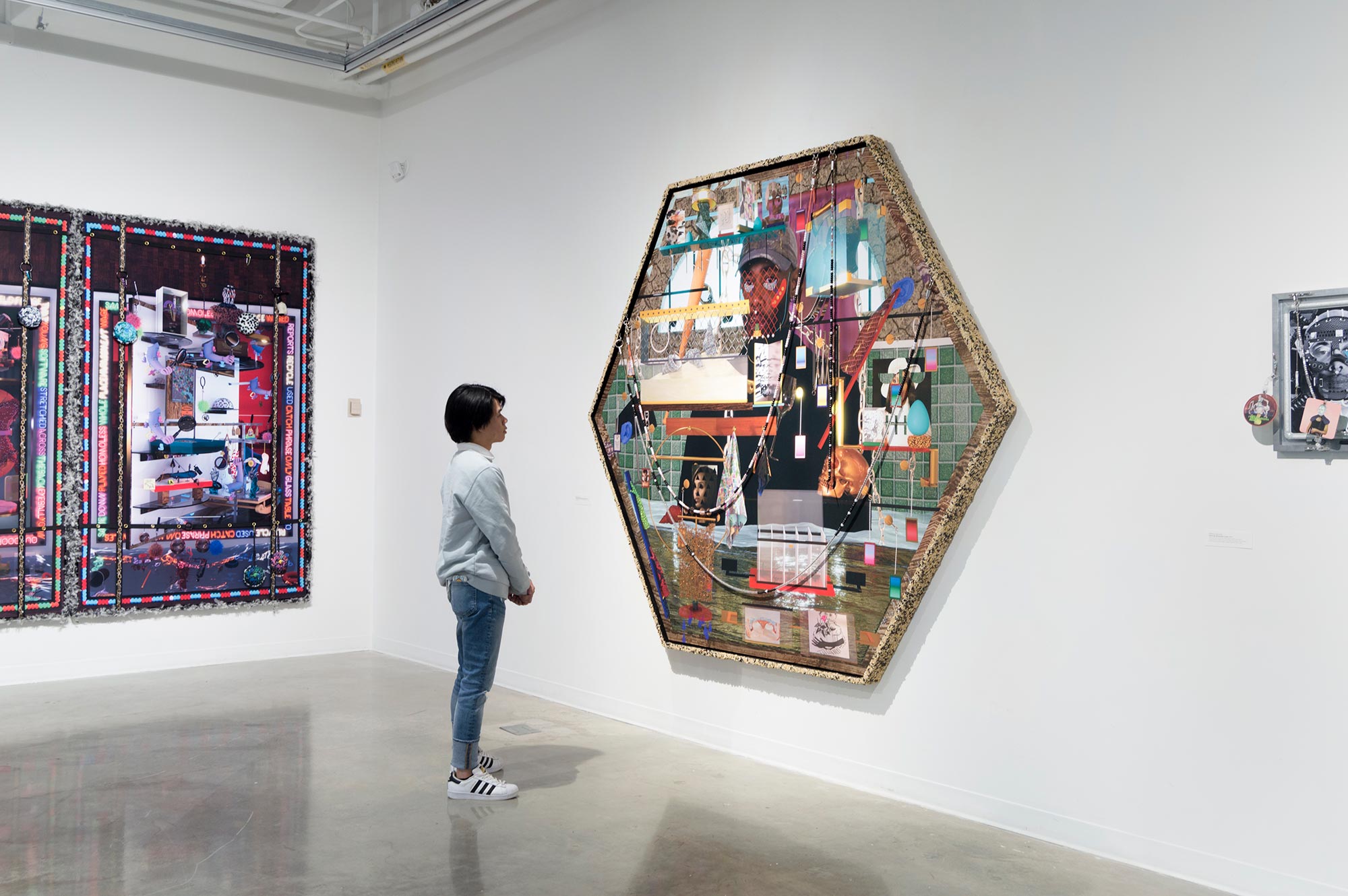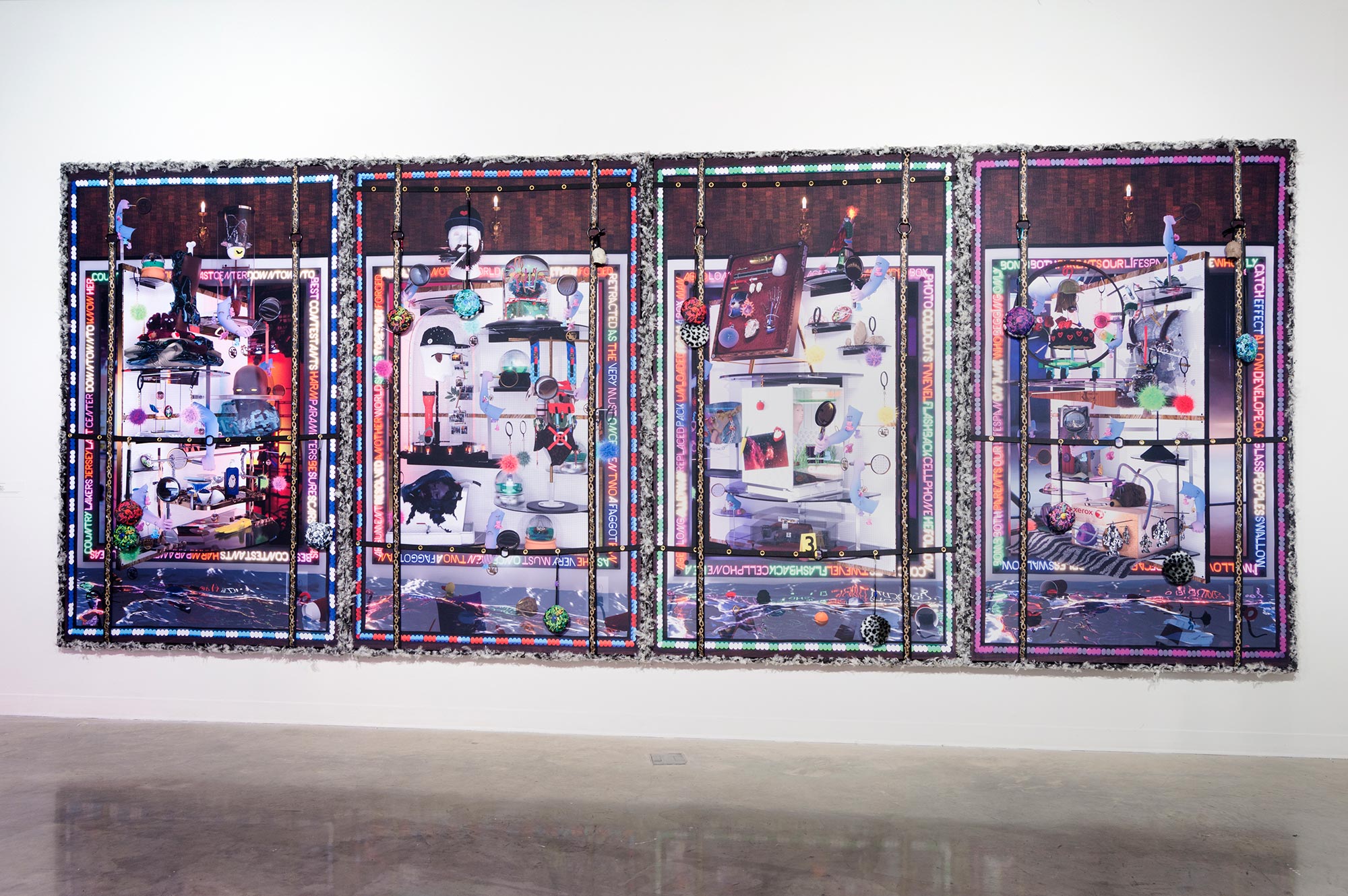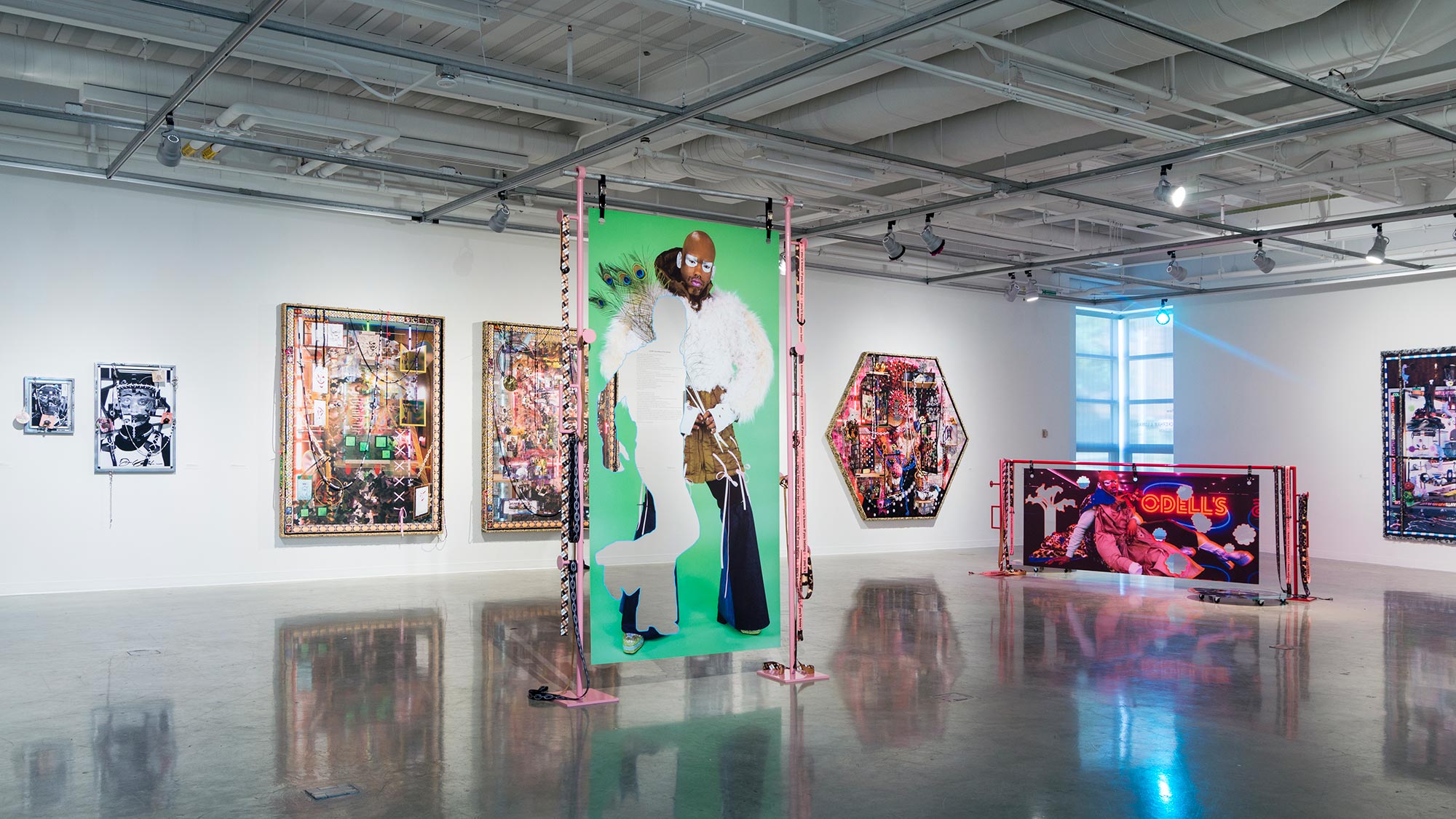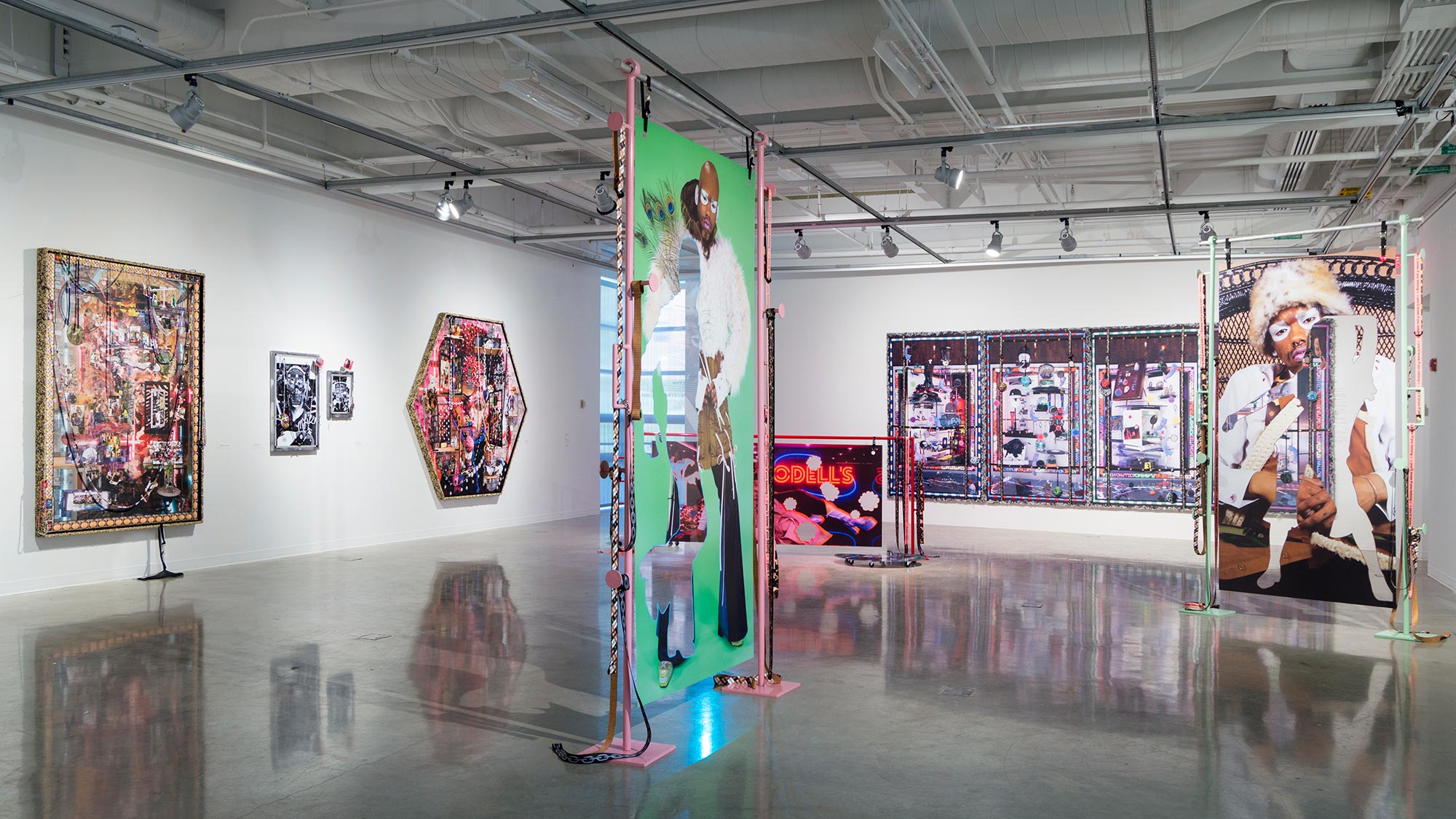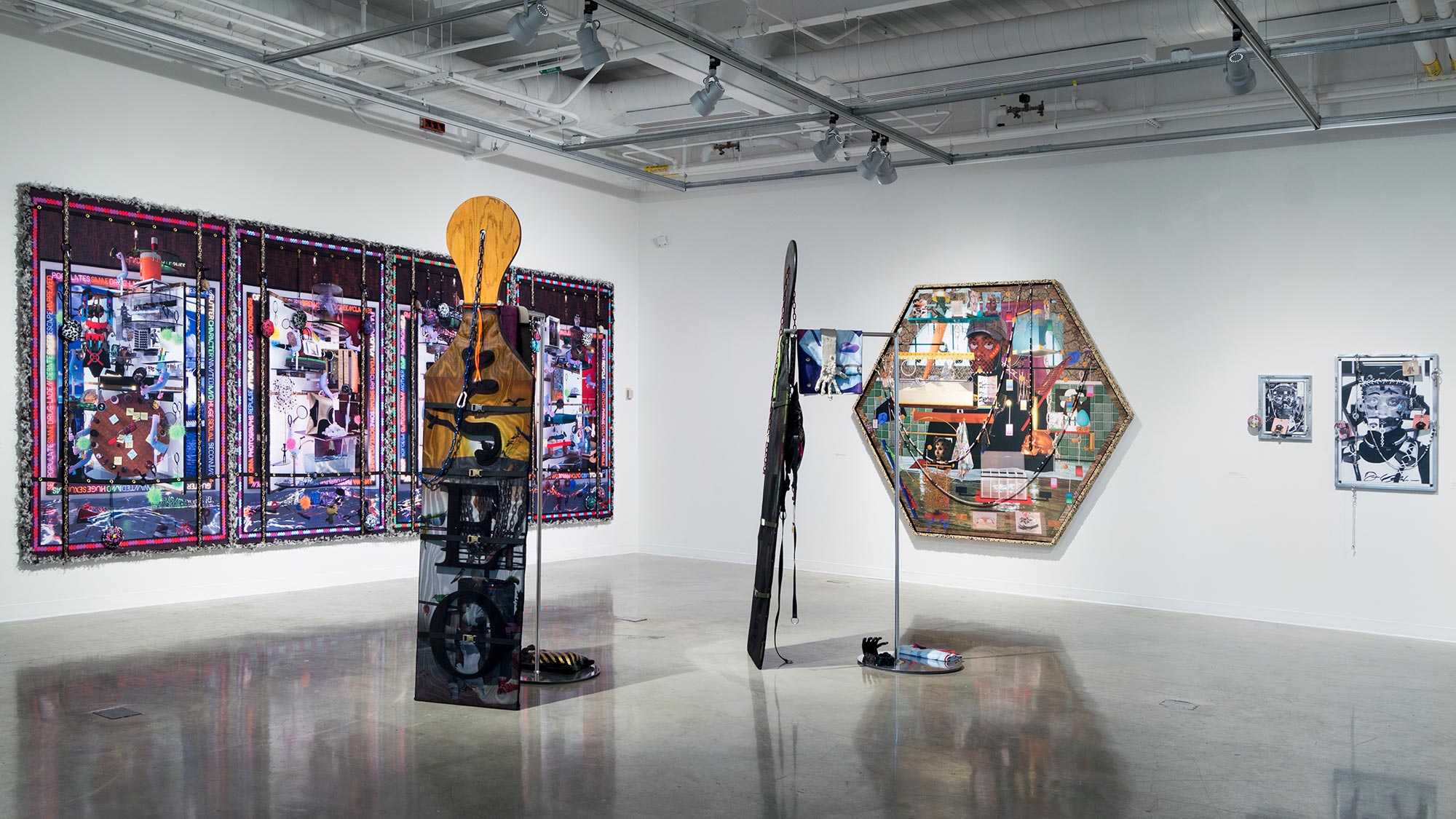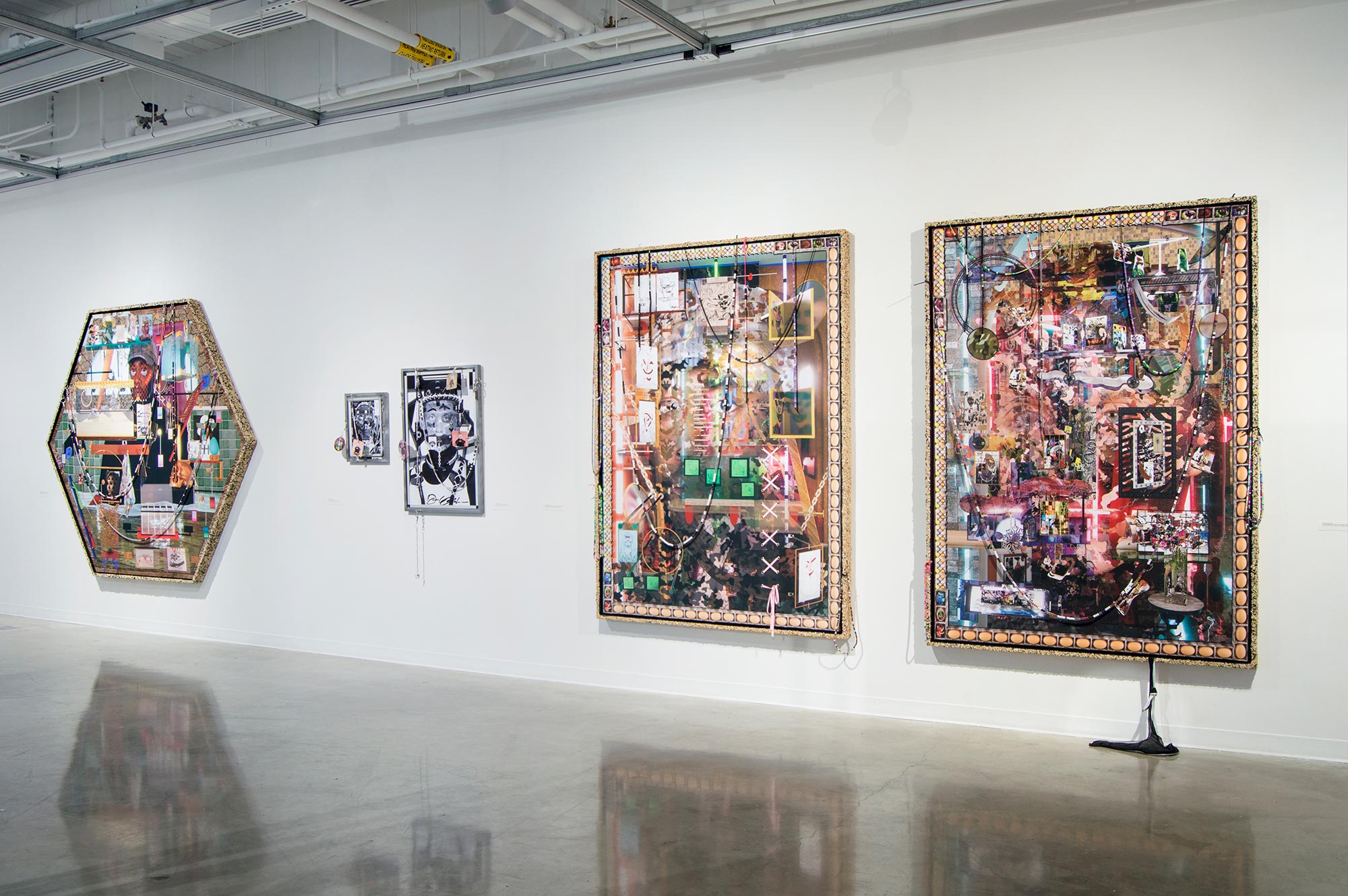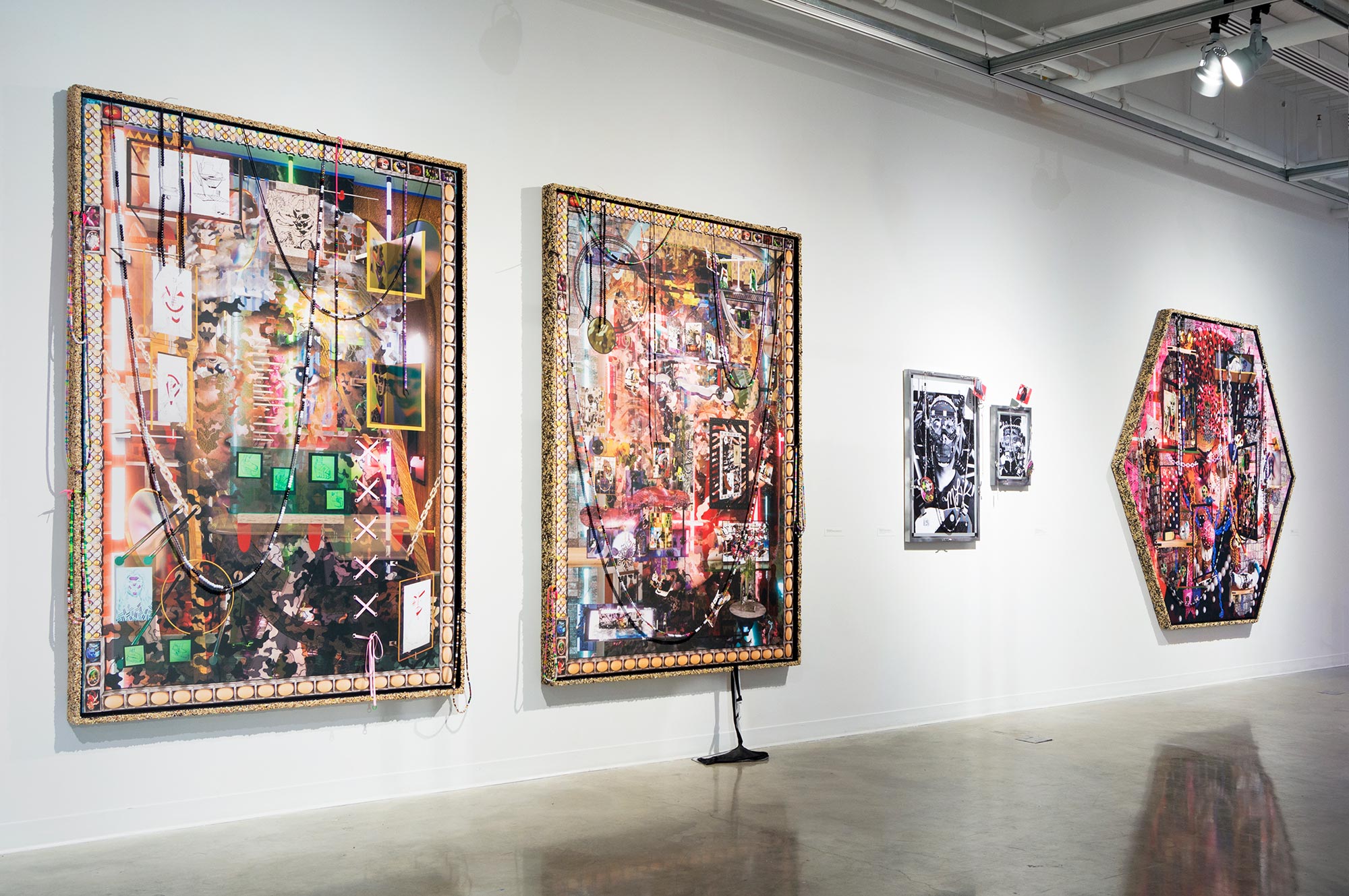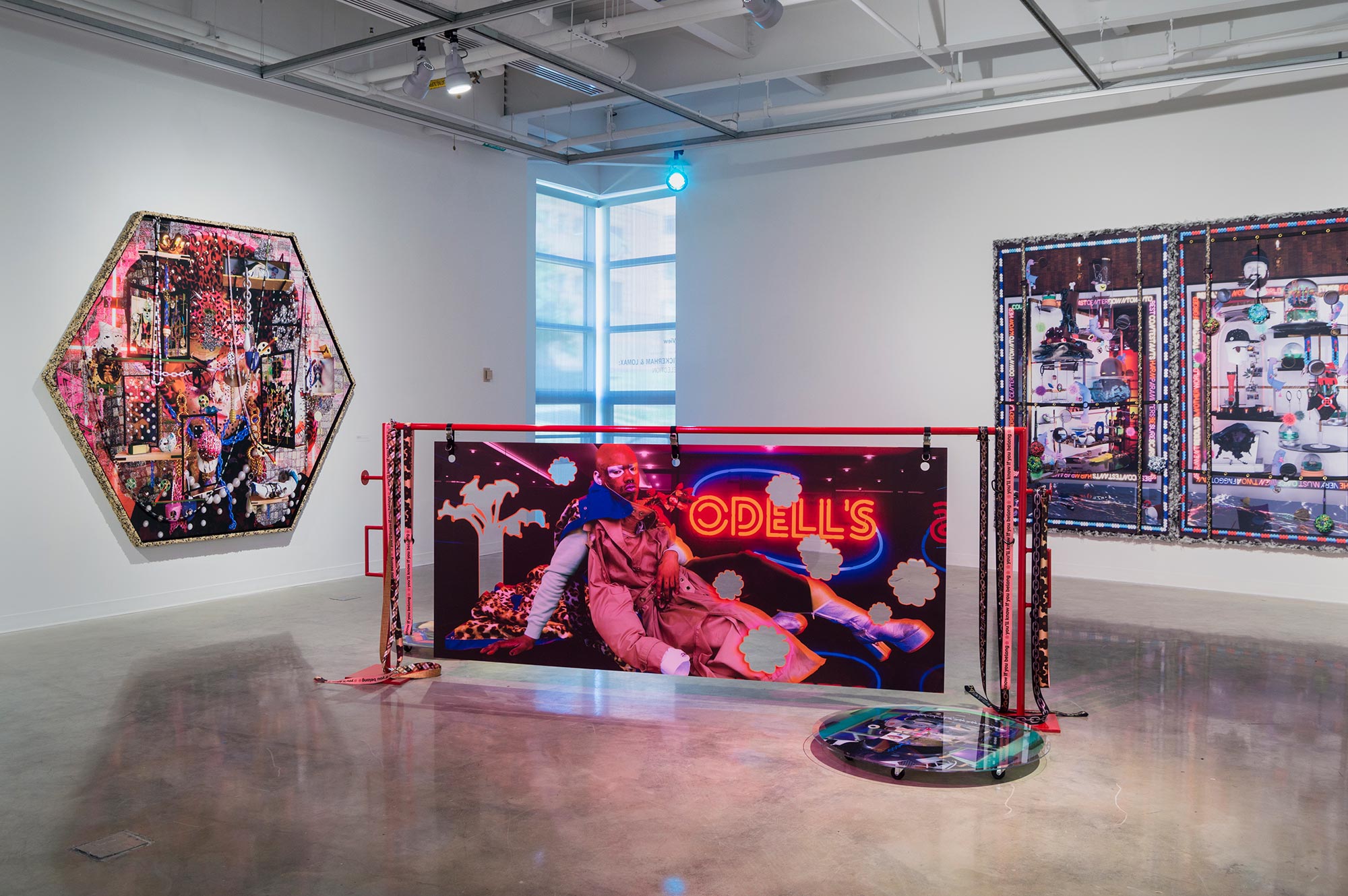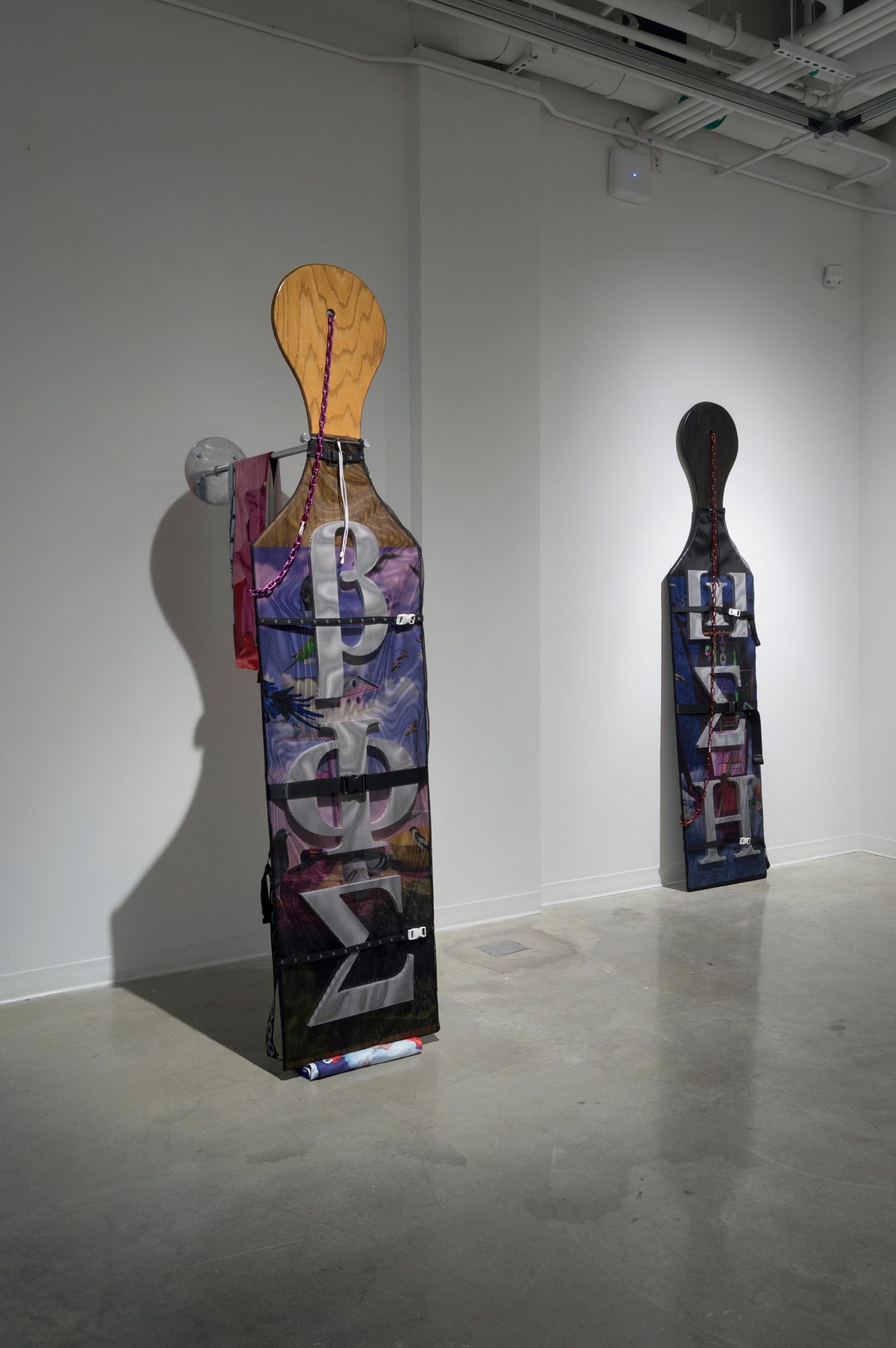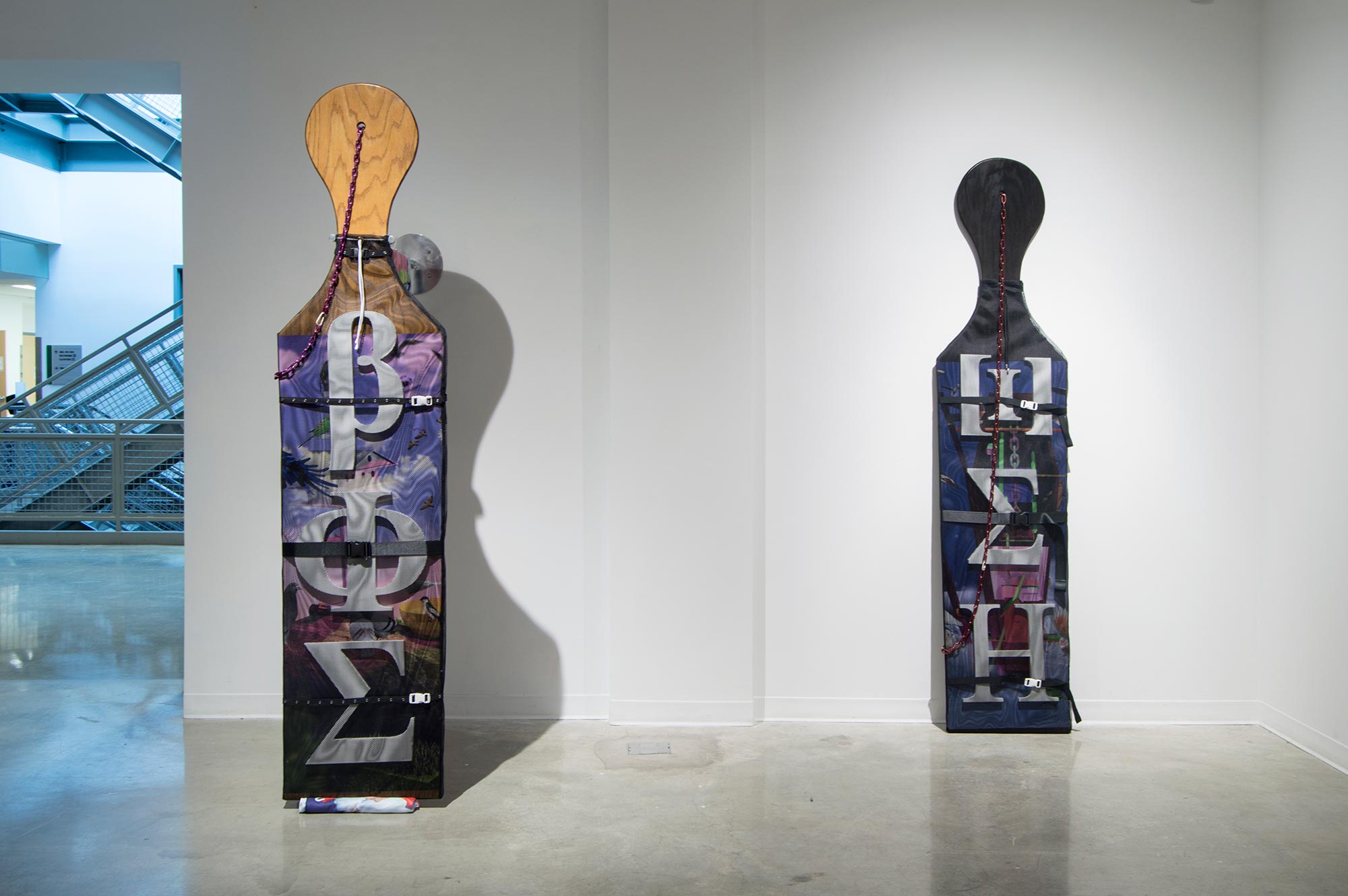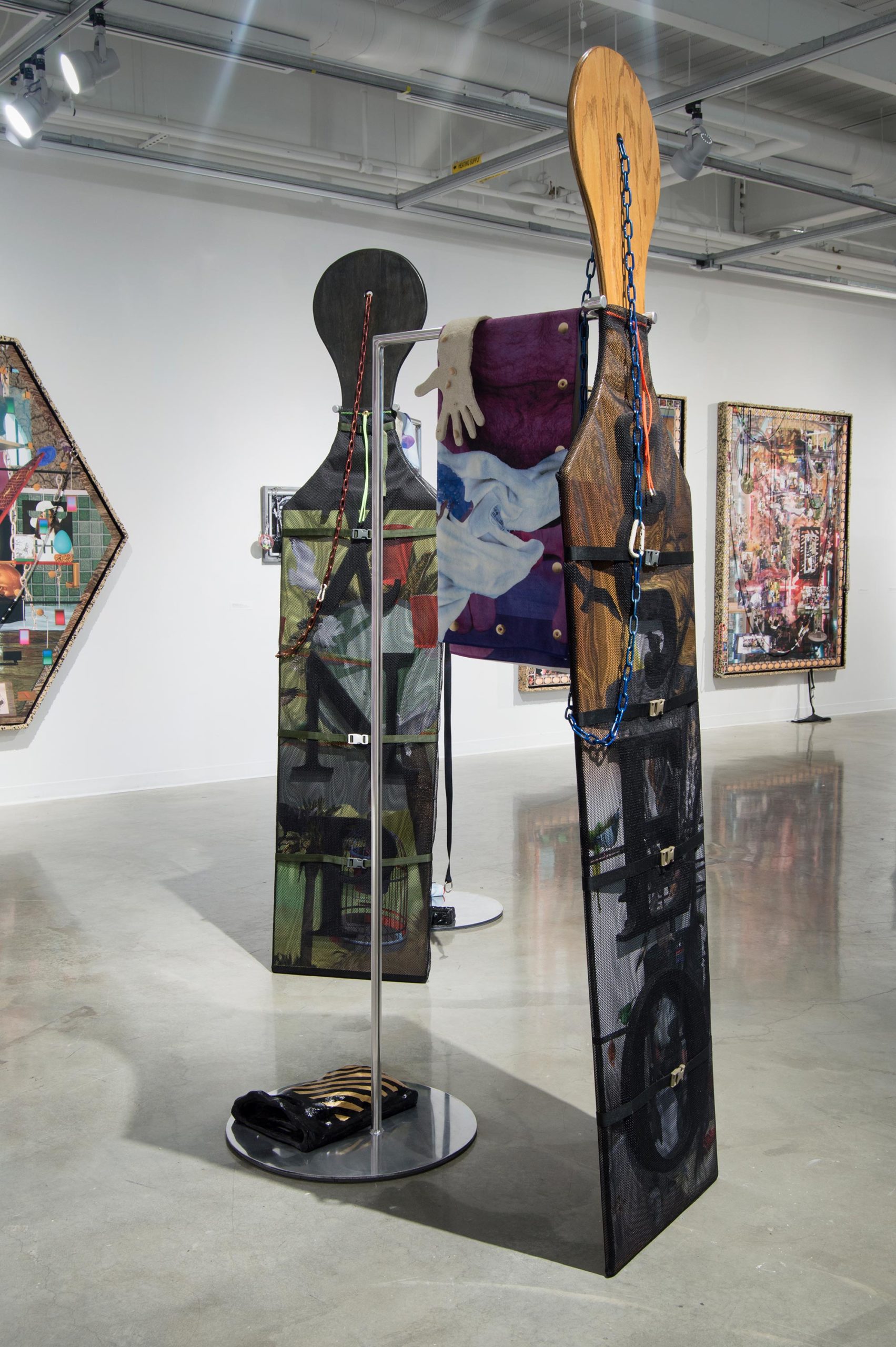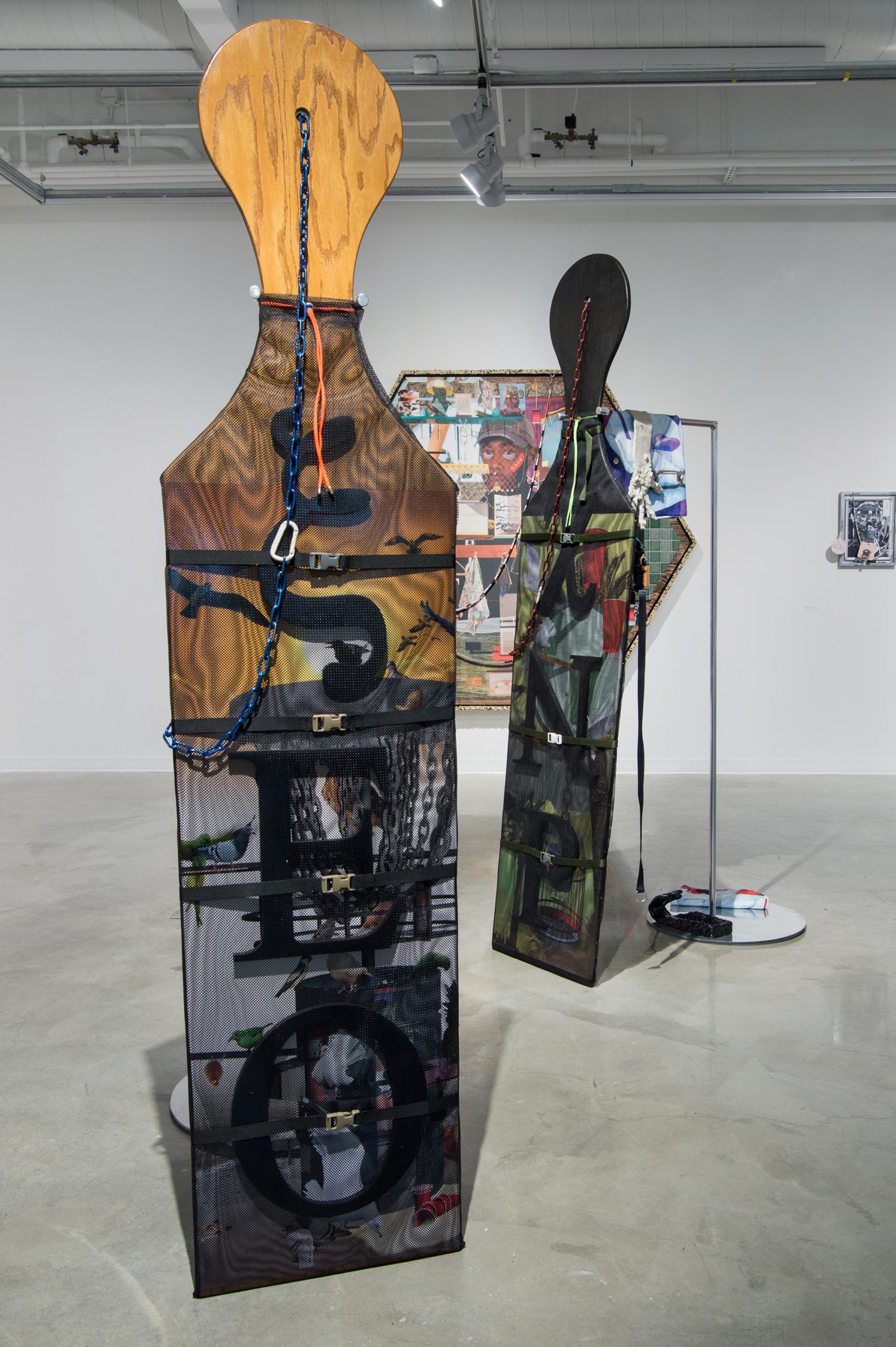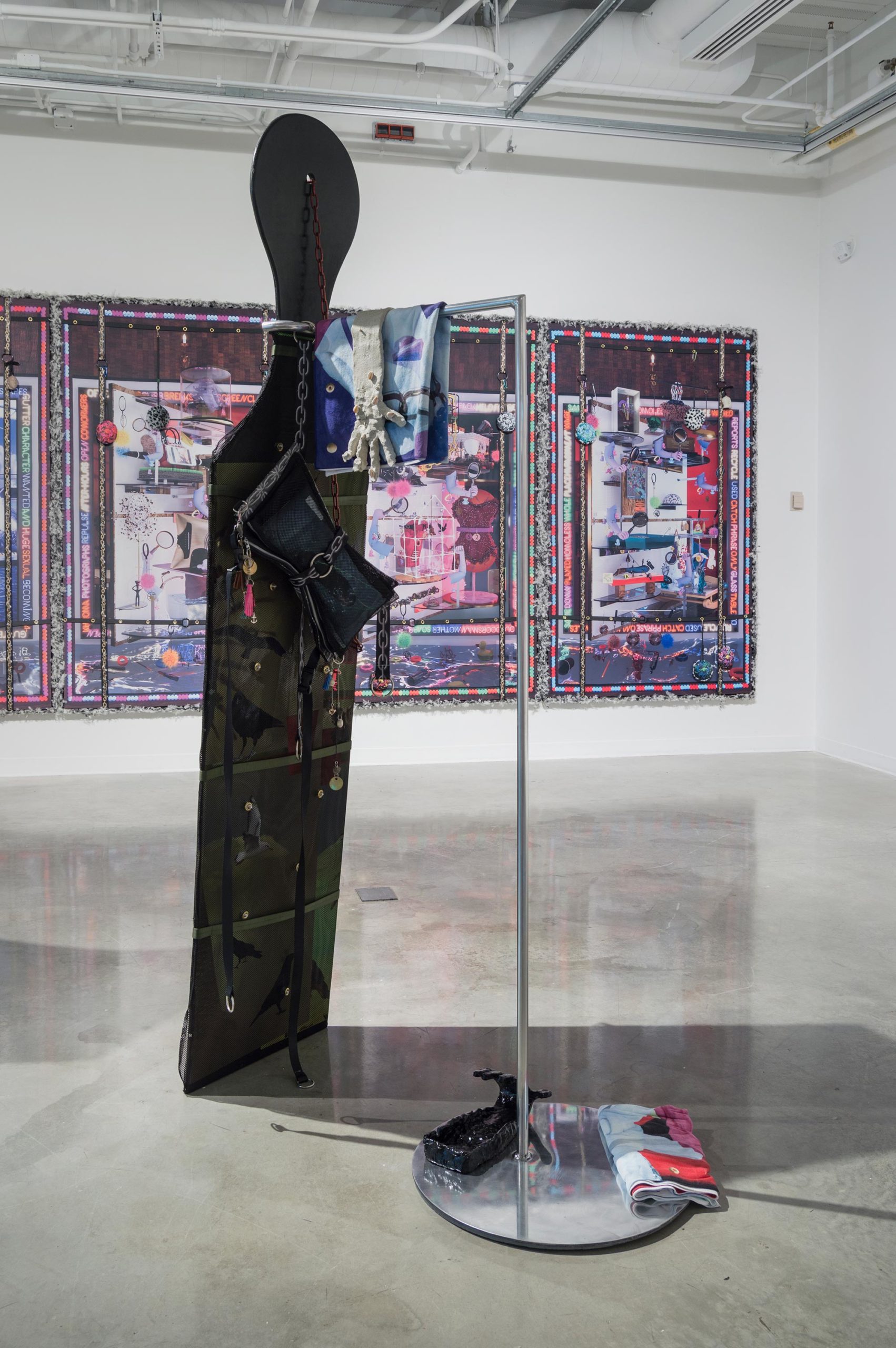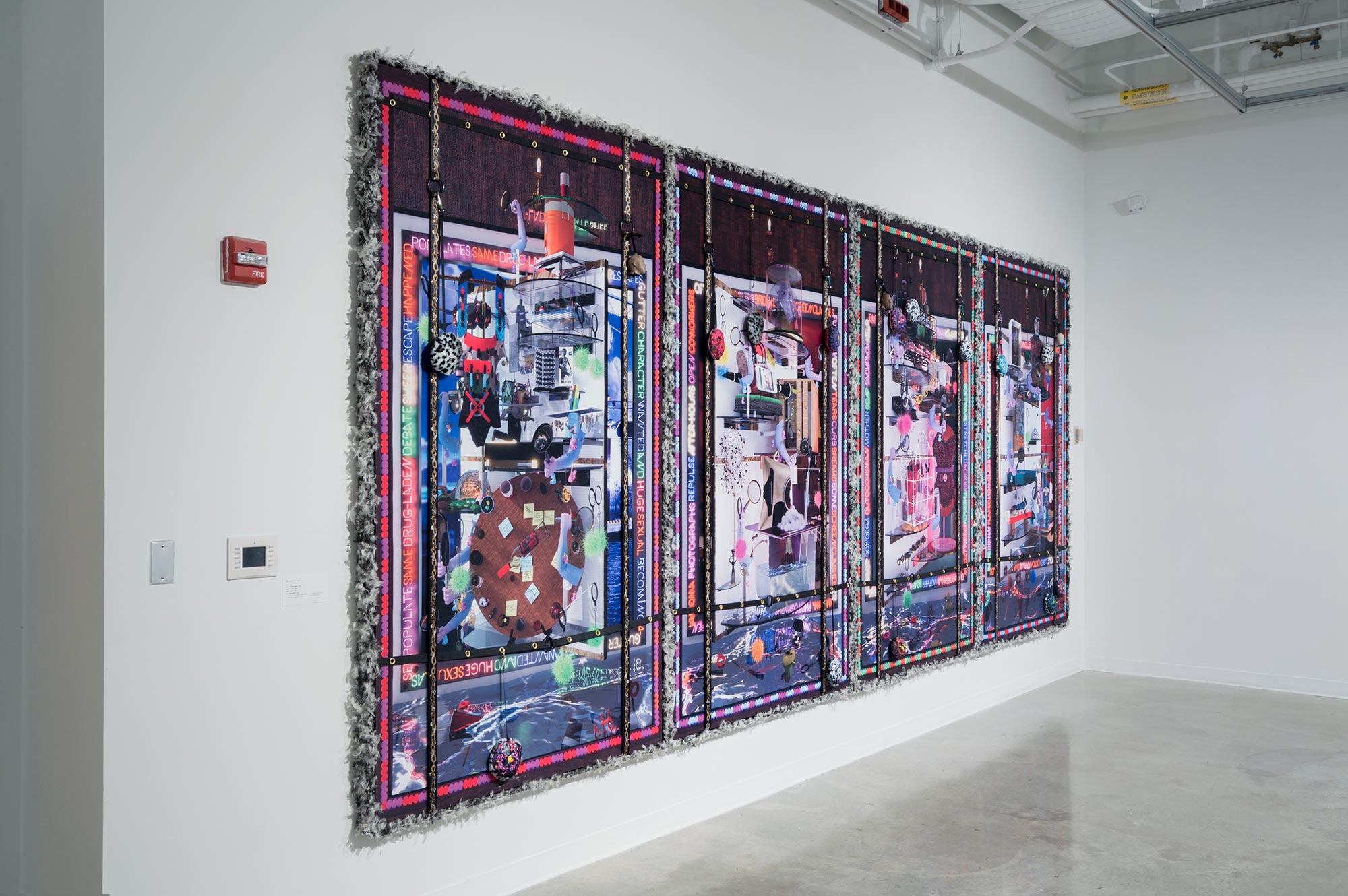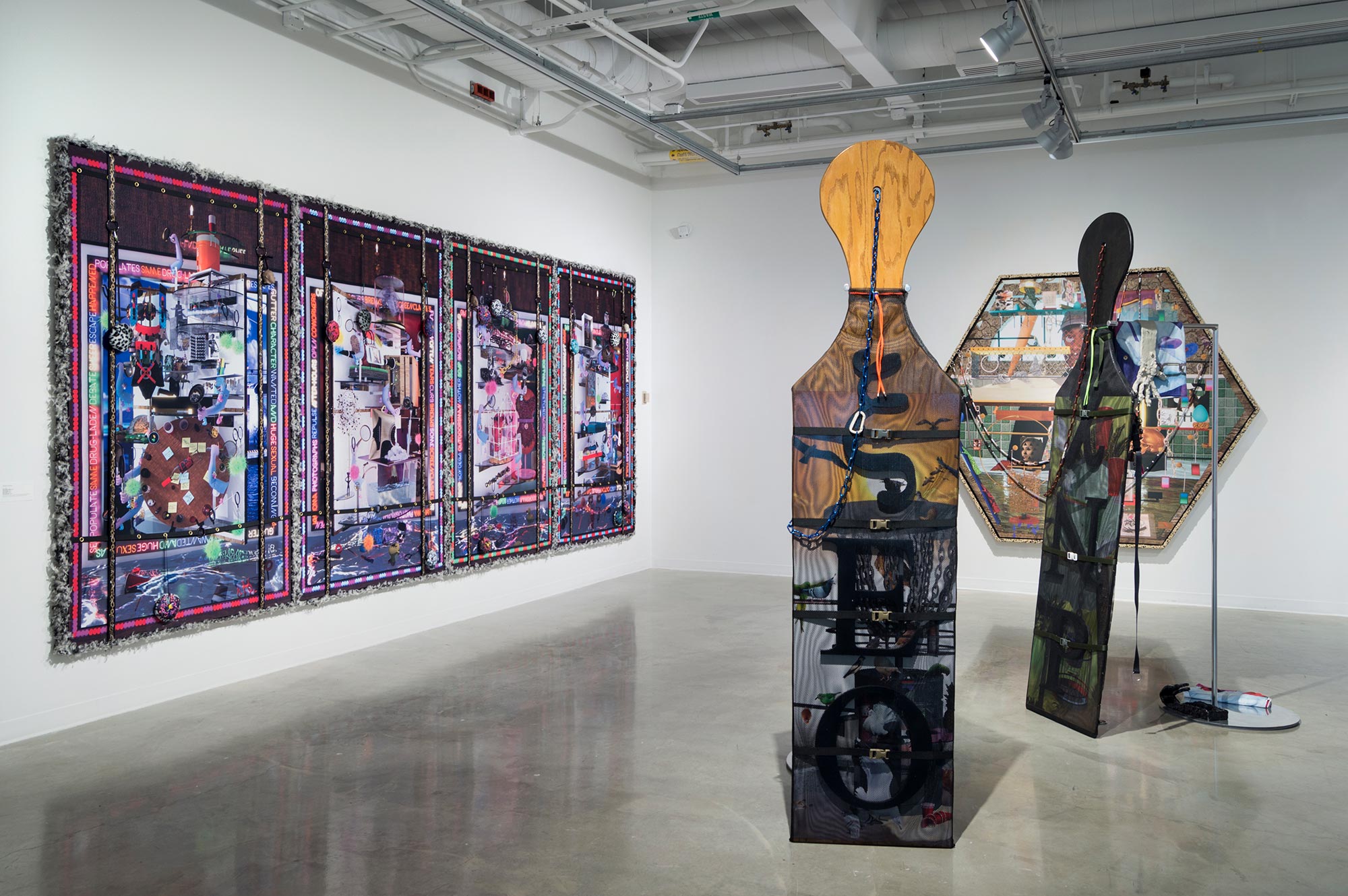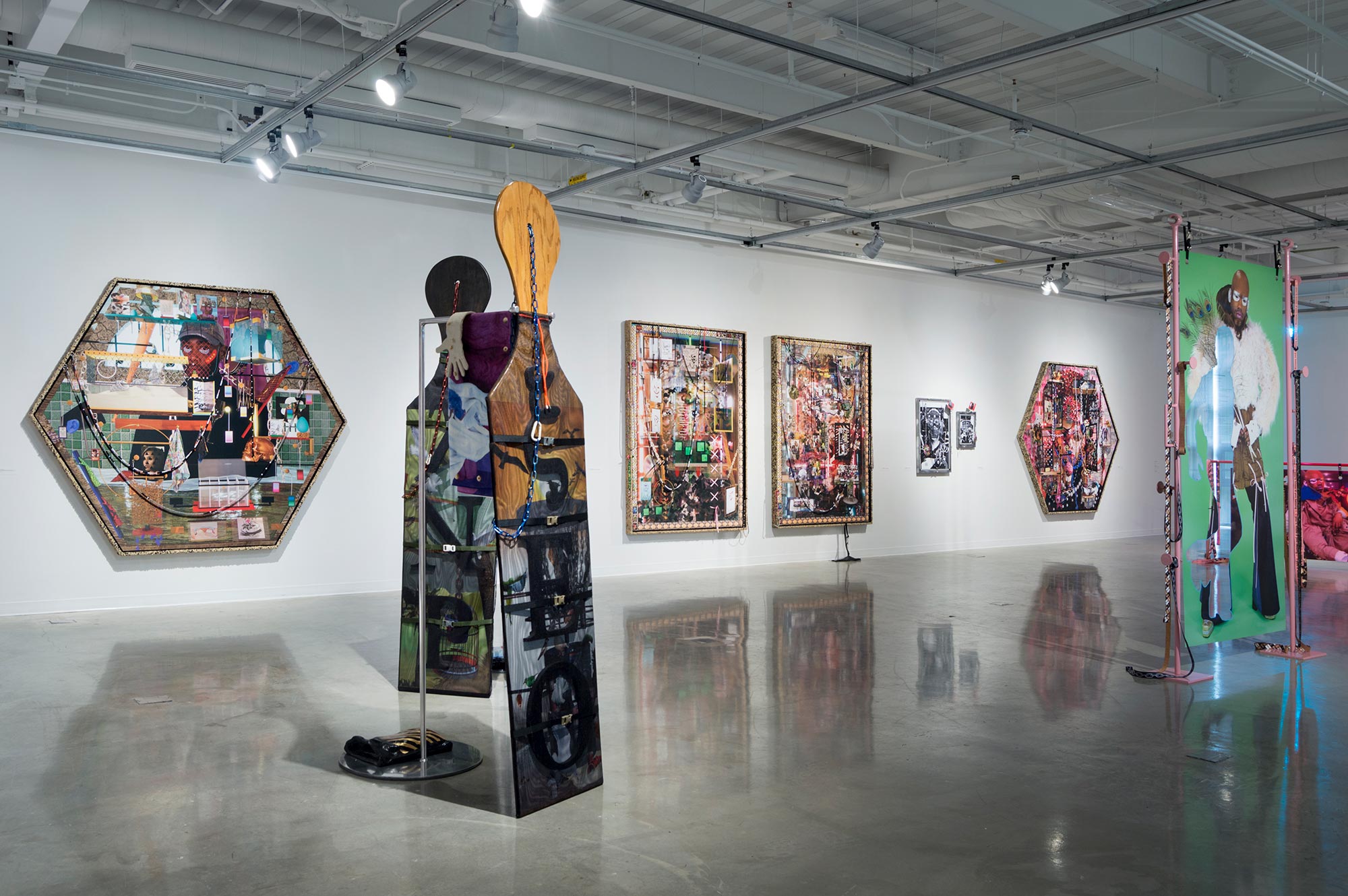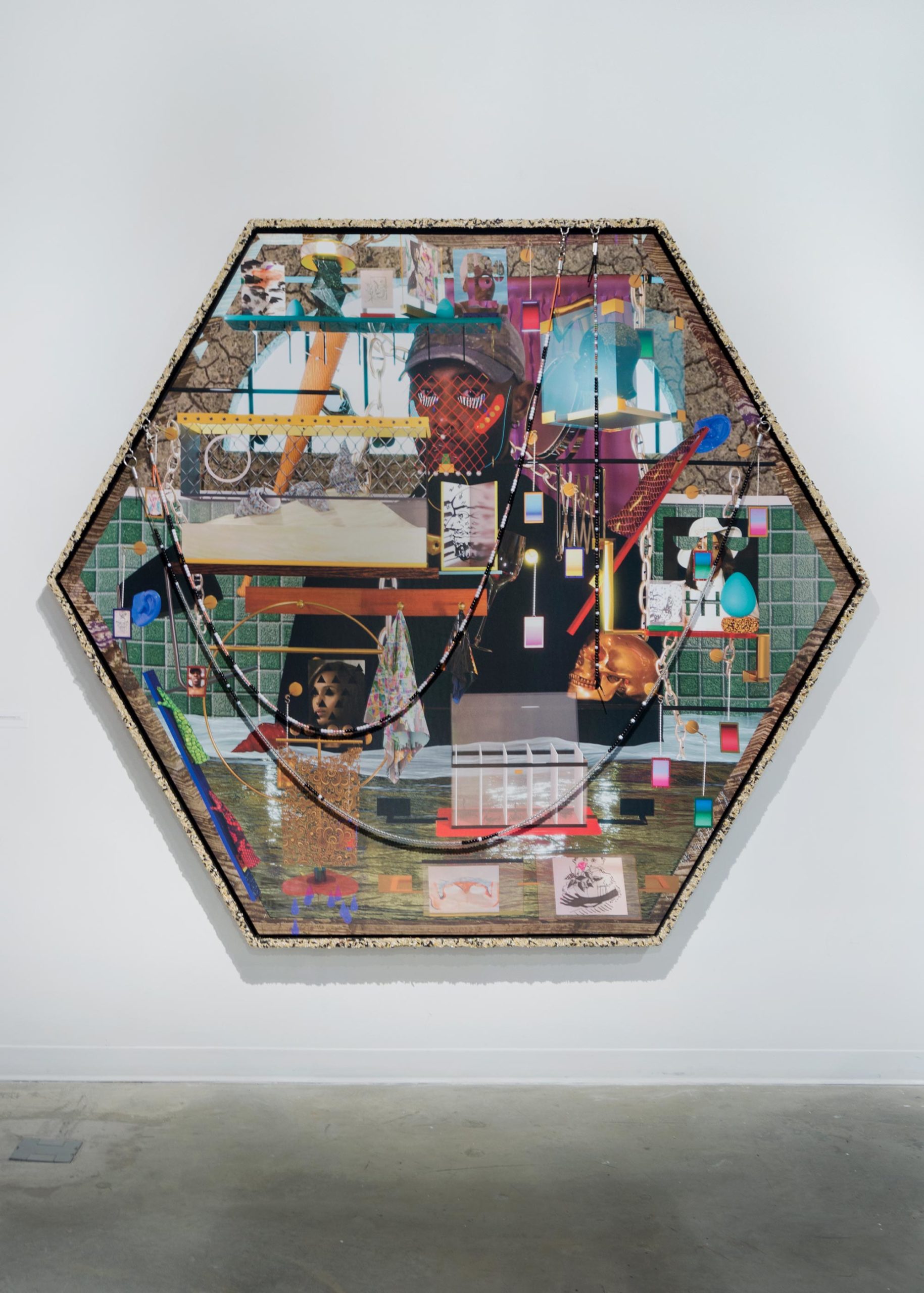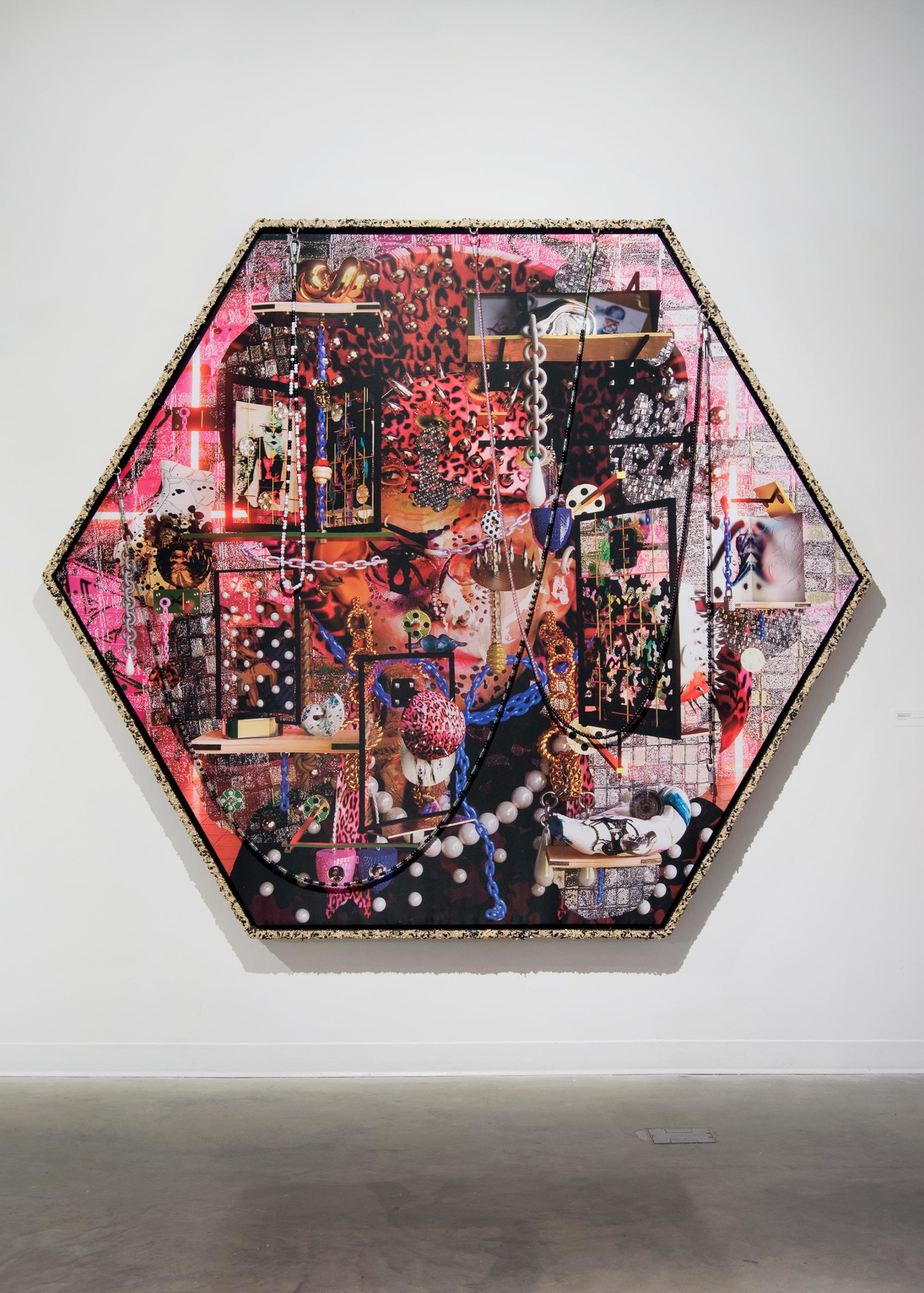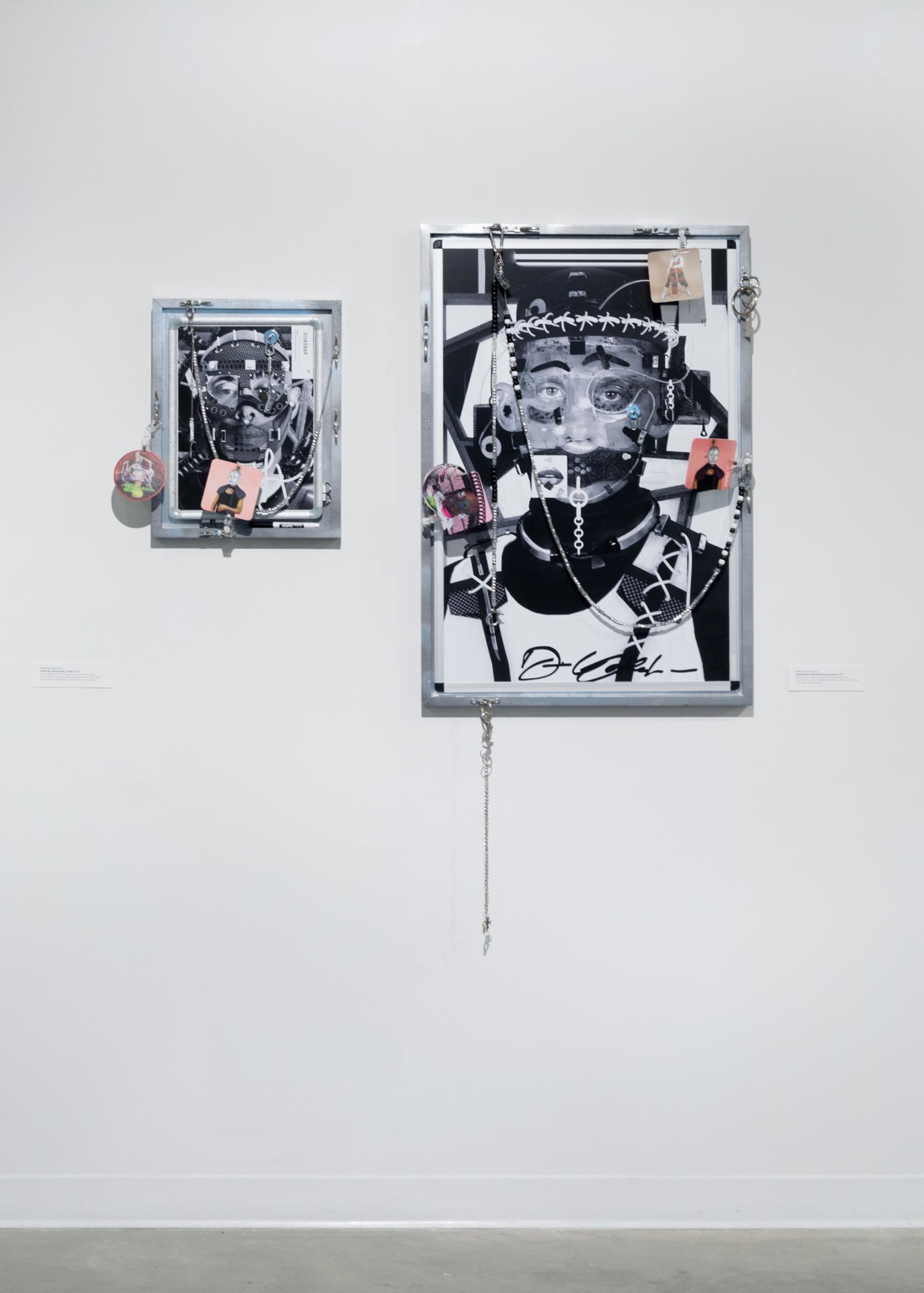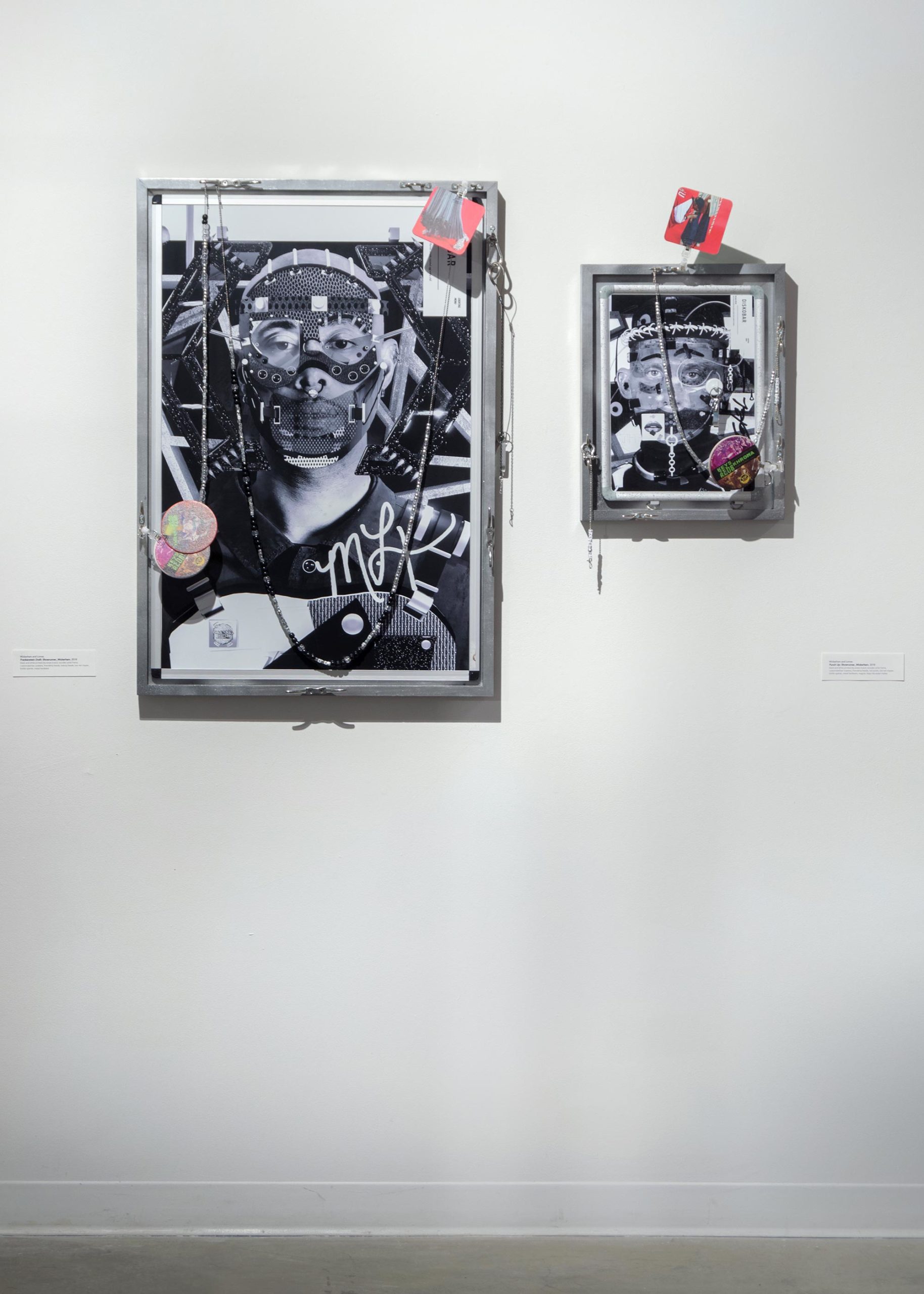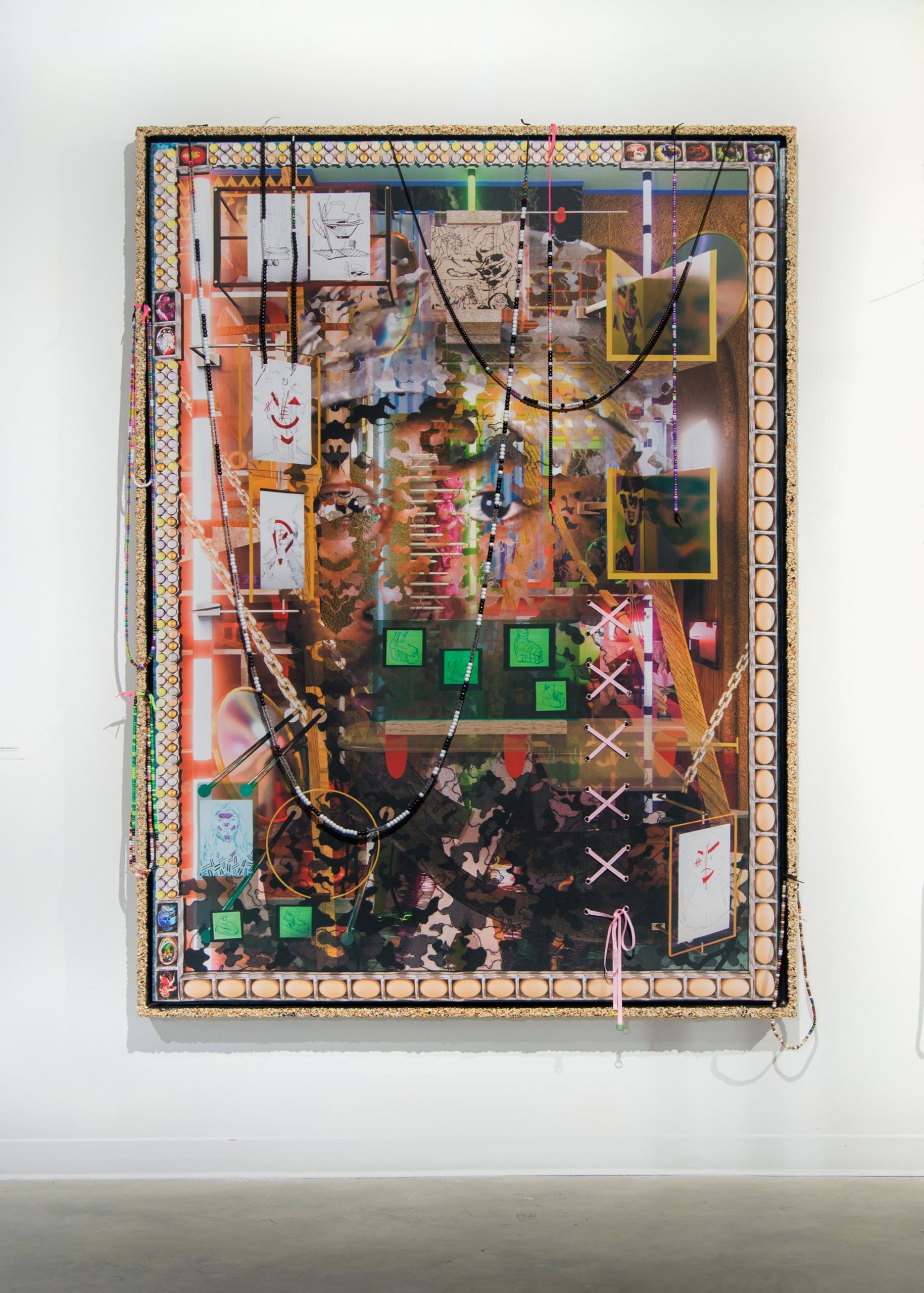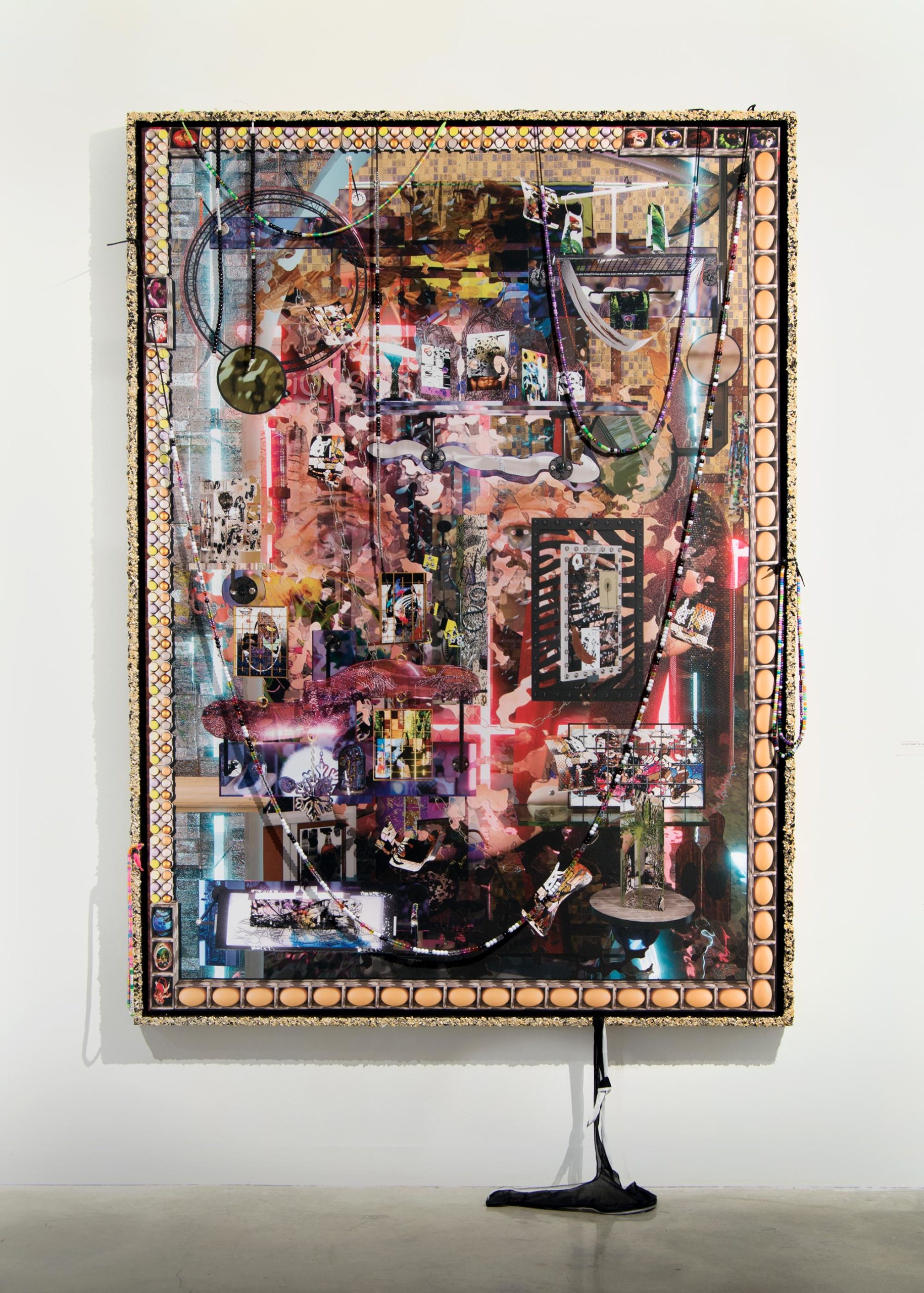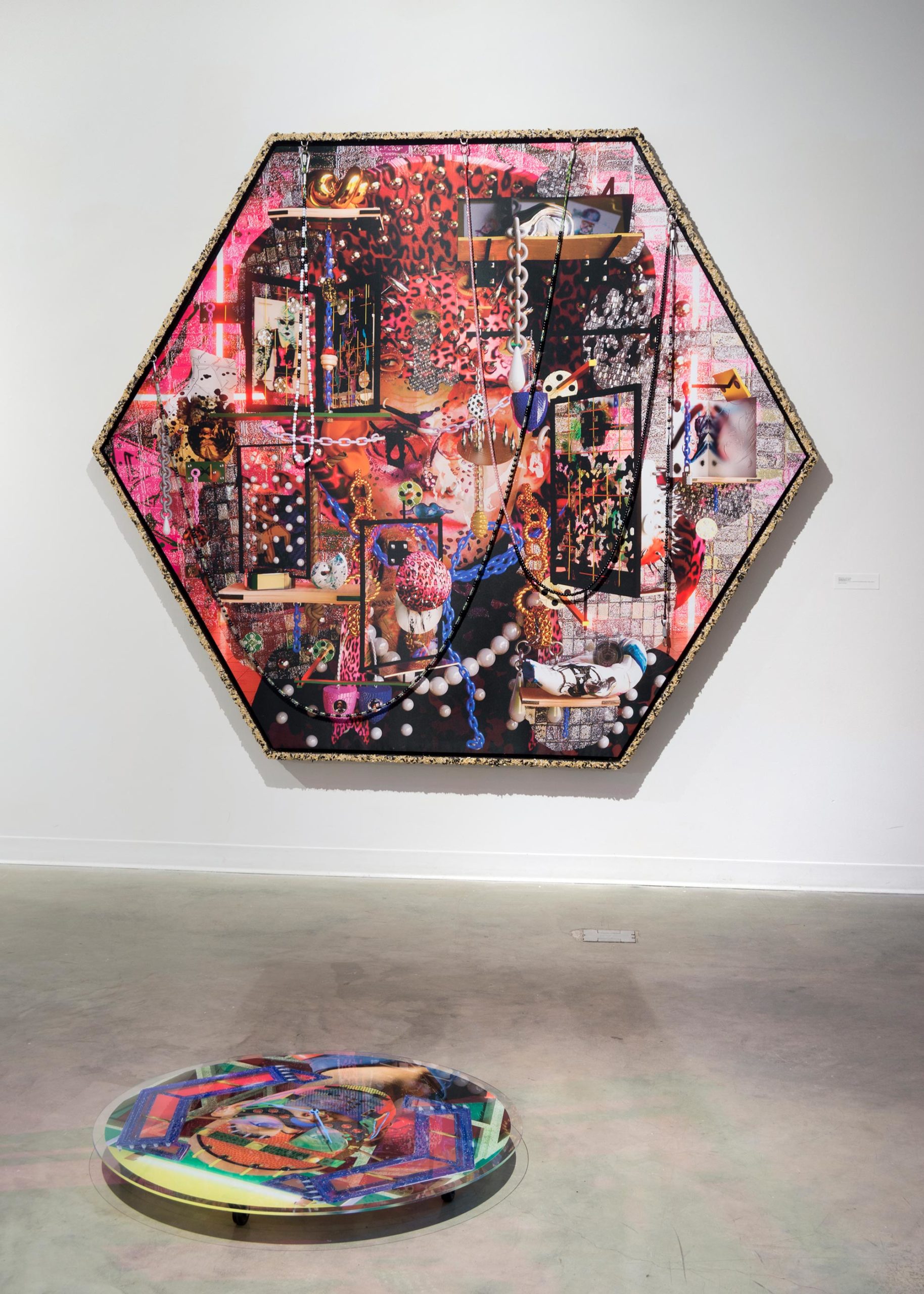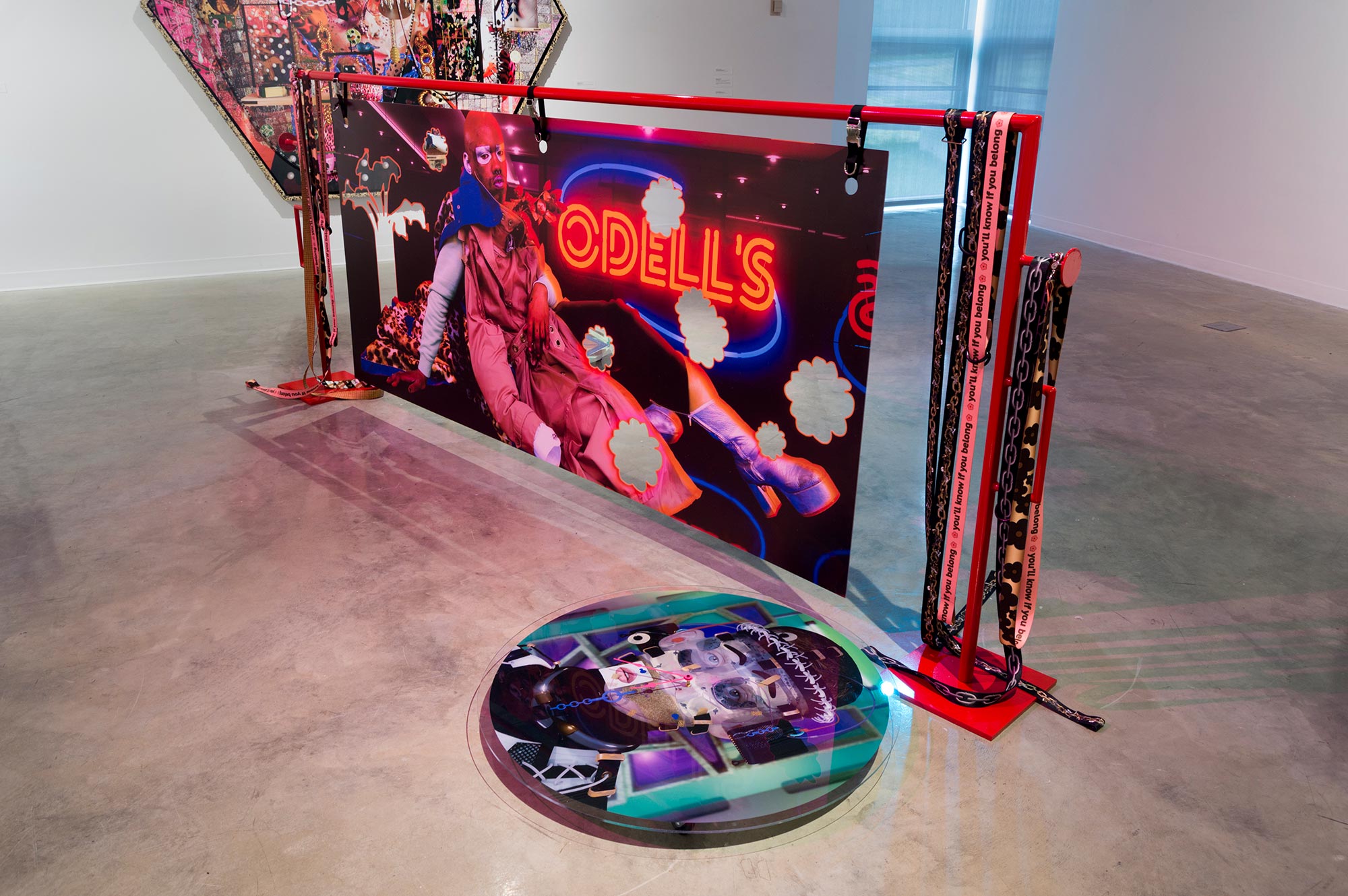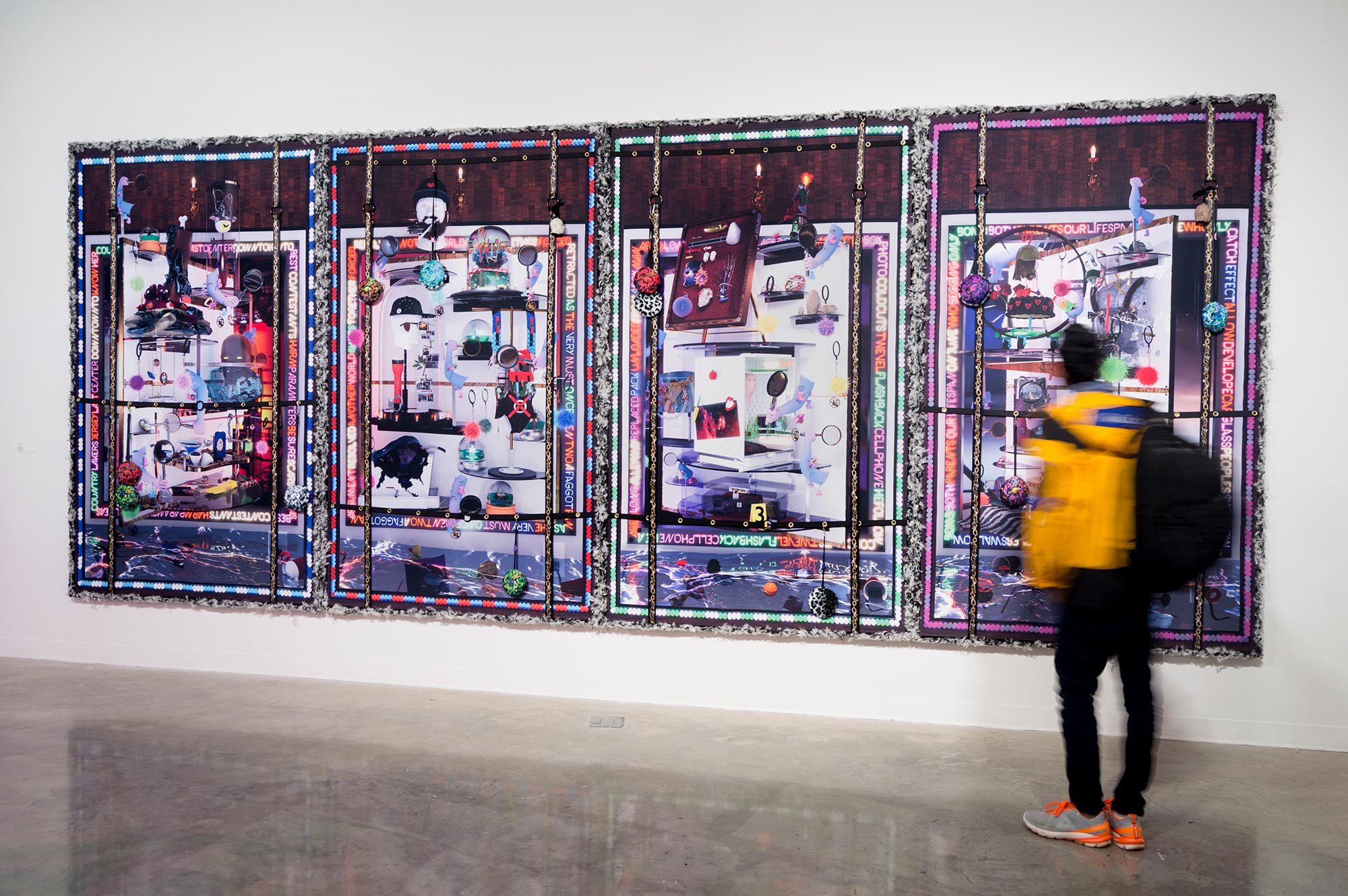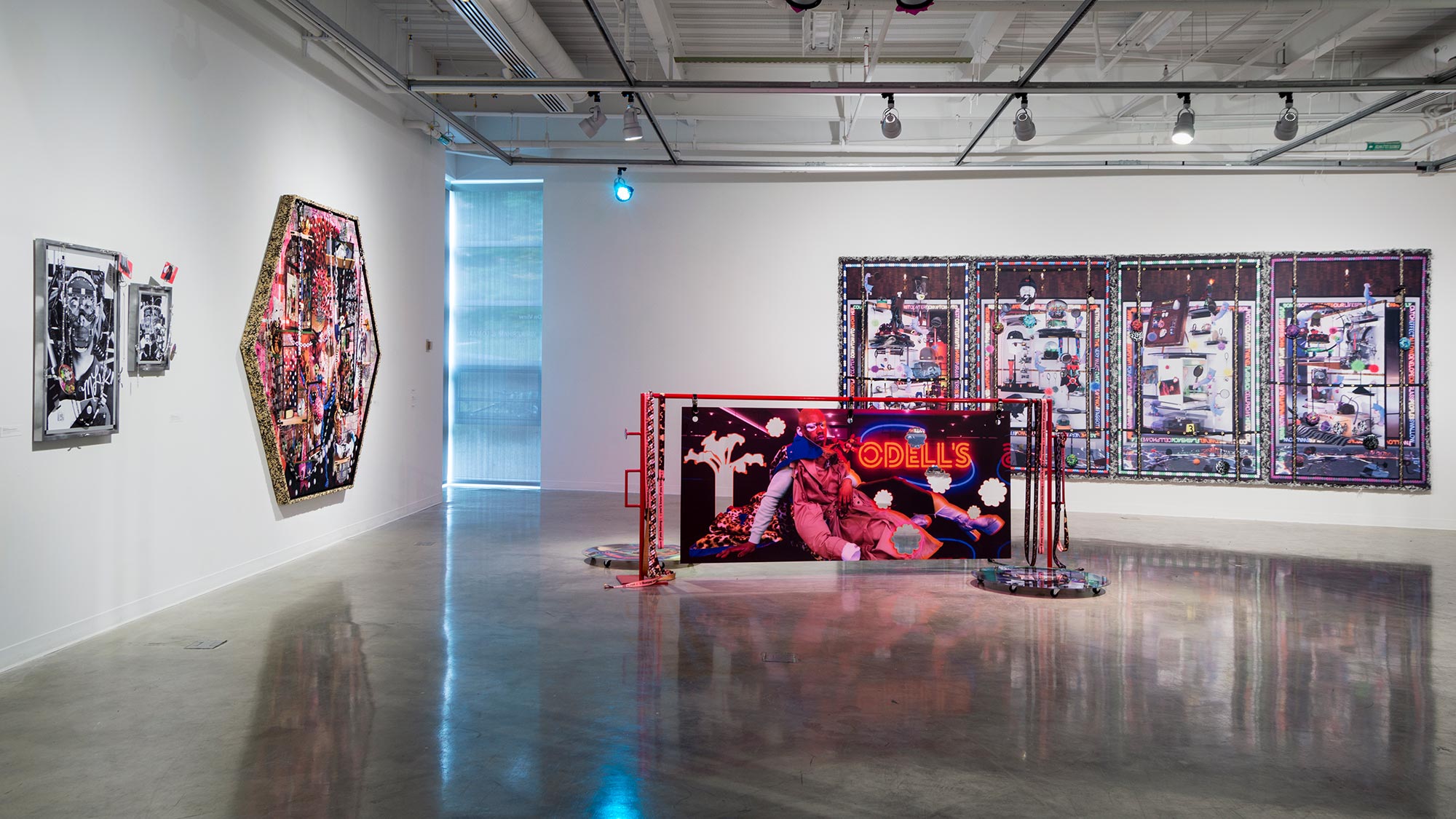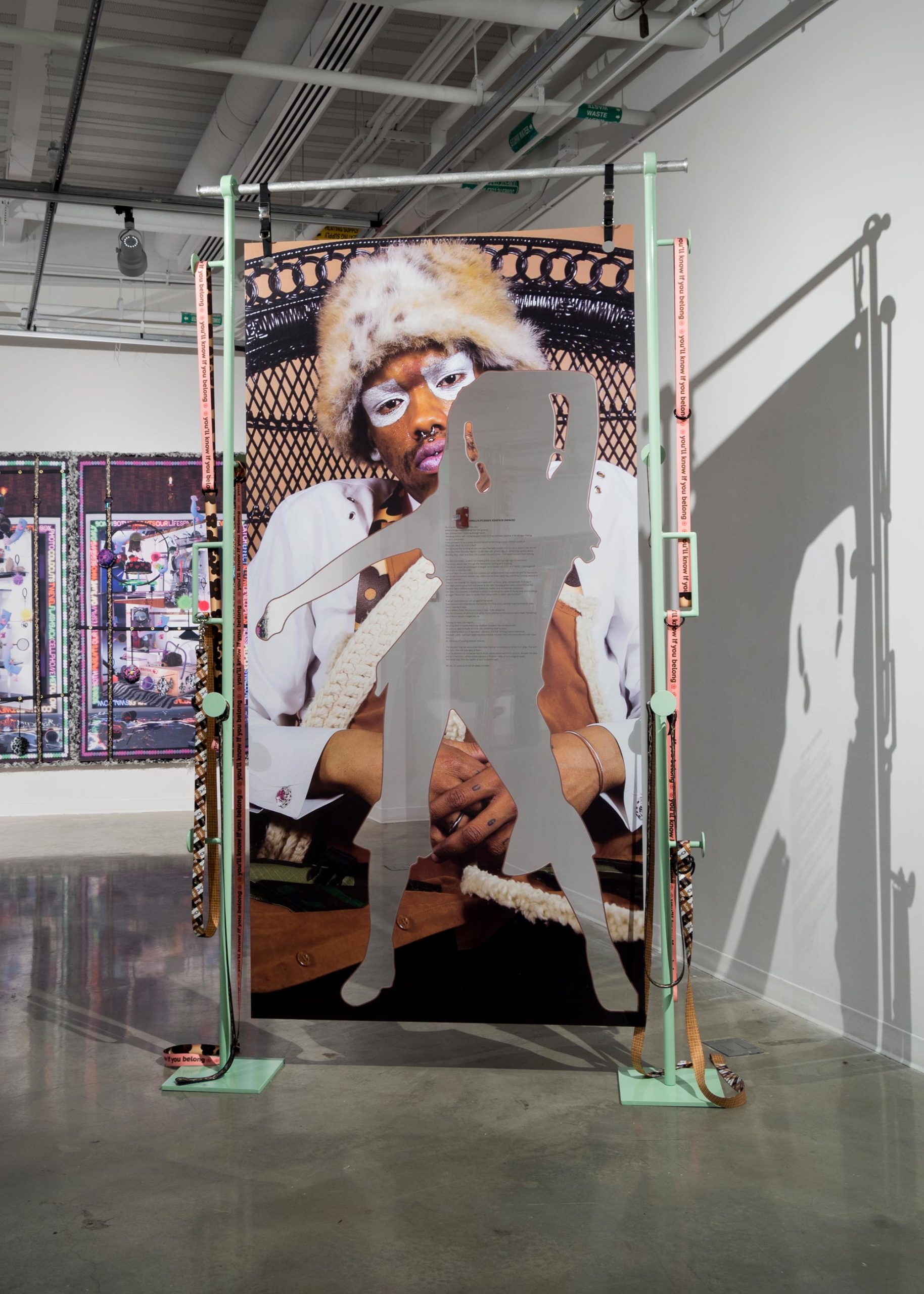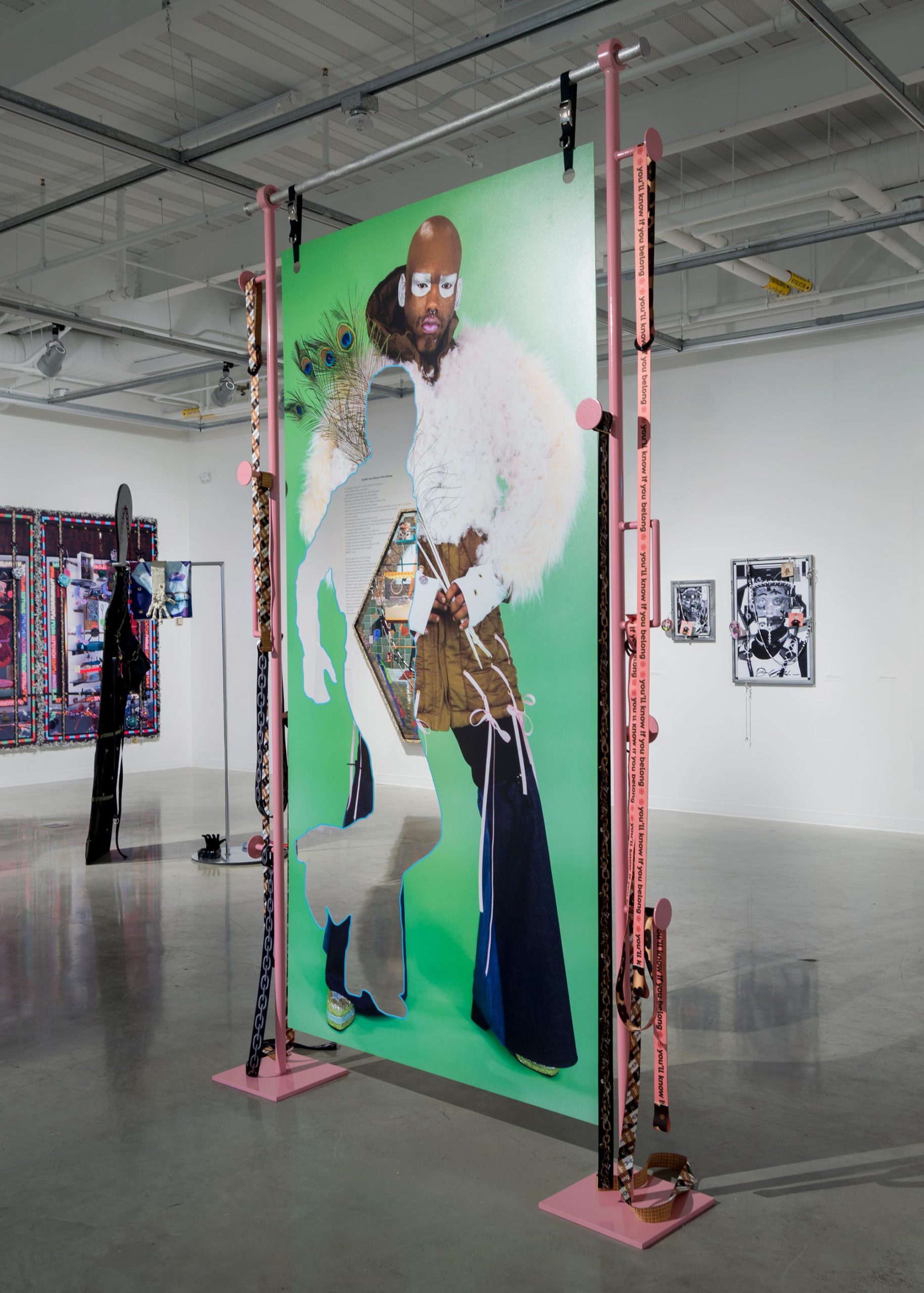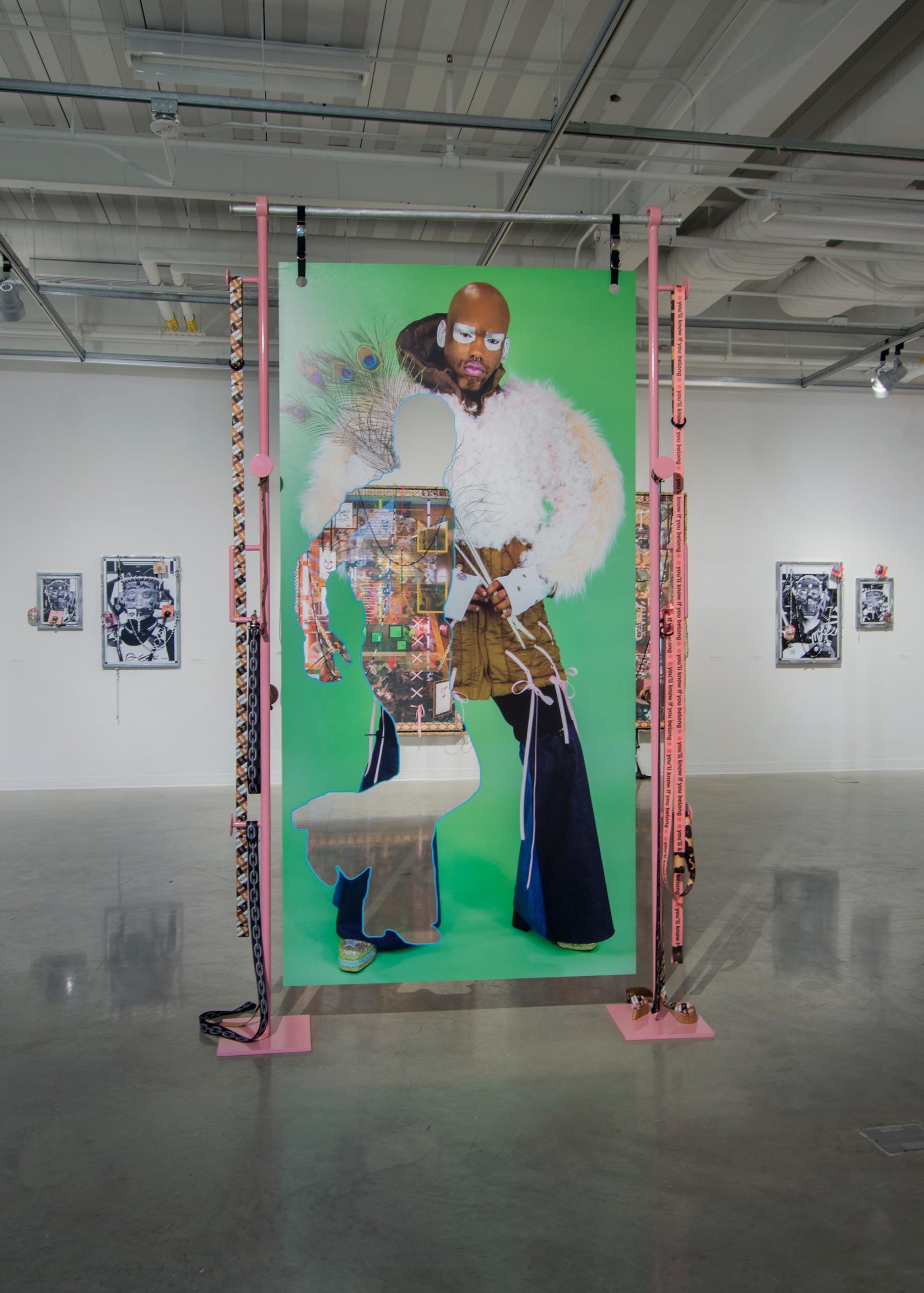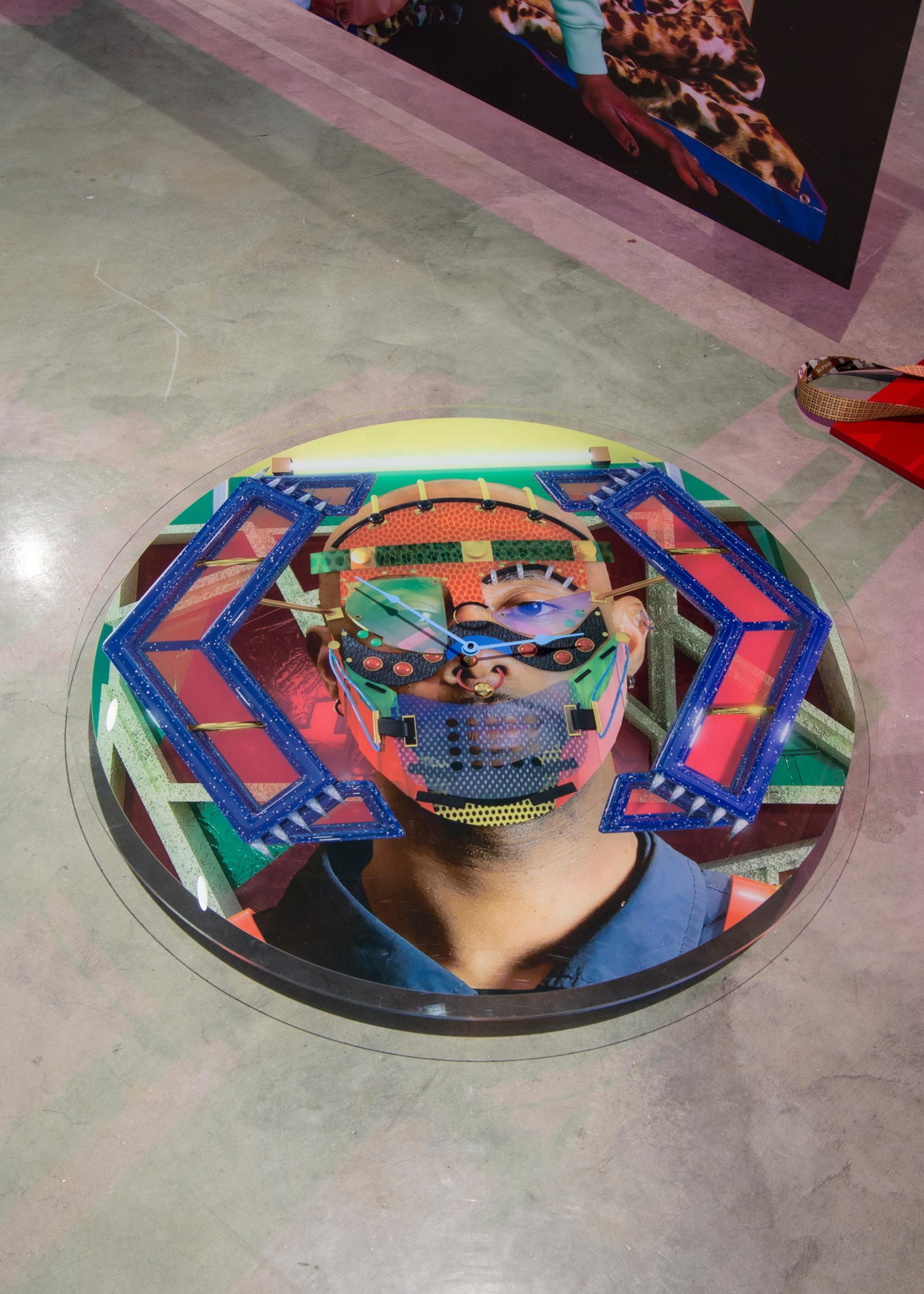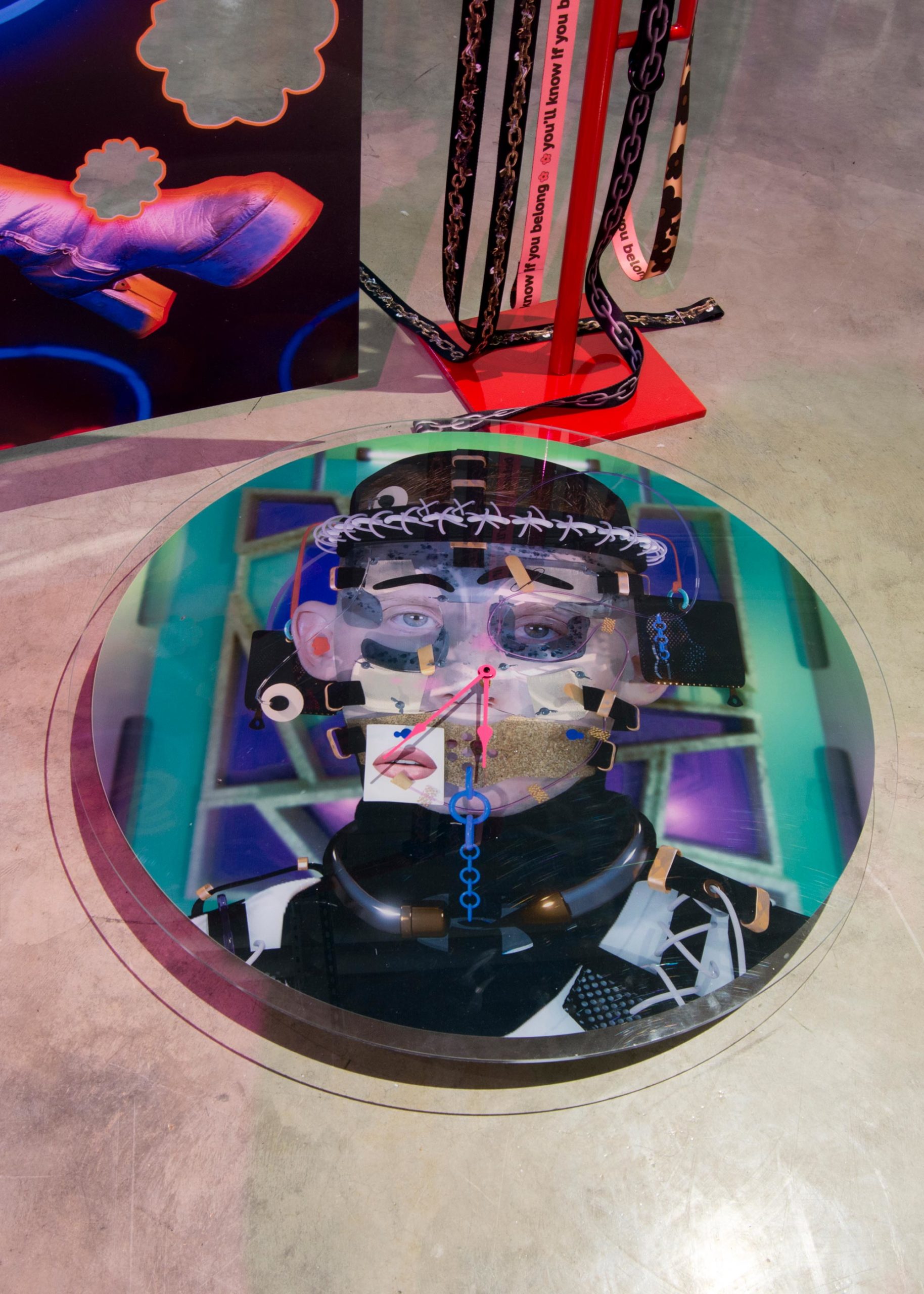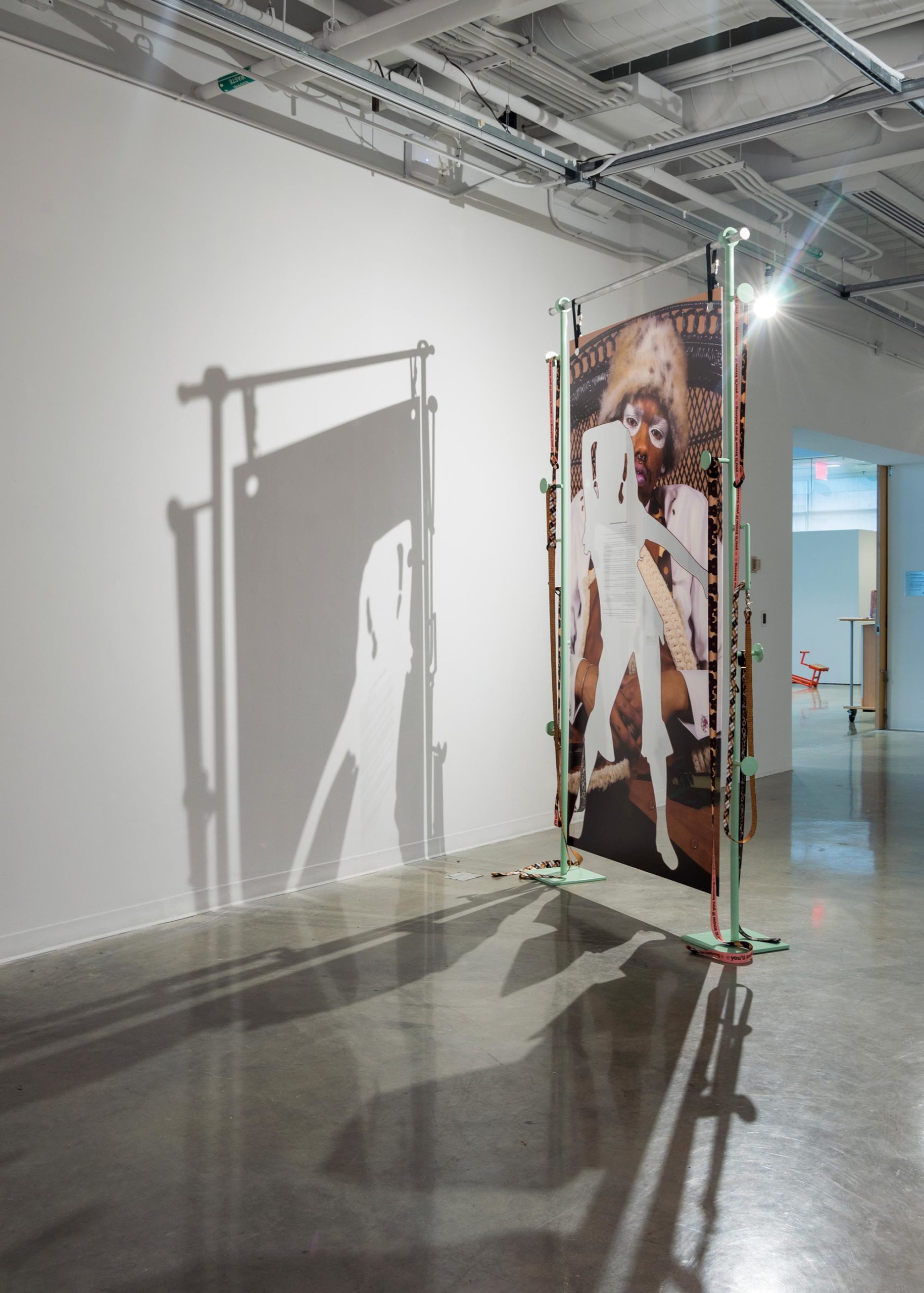Wickerham & Lomax: Selection
October 7–November 9, 2019 / Gillespie Gallery of Art, George Mason University / Fairfax, VA
Mason Exhibitions is pleased to present Selection, an exhibition by Wickerham and Lomax, from October 7 – November 9 in the Gillespie Gallery of Art. For the first time since starting their collaboration almost a decade ago, the Baltimore-based duo present a cross section of their cooperative and multi-faceted studio practice. Paintings, sculptures and elements from previous installations are brought together in a single gallery, offering a unique opportunity to observe how their aesthetic intentions cross-pollinate between projects and reveal some of the major themes of their practice.
Wickerham and Lomax’s work is deeply immersed in the use of digital technologies. To produce their works they use a variety of techniques including digital photography and video, computer generated graphics (CGI), 3-d modeling software, and digital printing. From a research perspective, their practice is akin to an anthropological investigation of digital media’s effects on personal identity, relationships, social codes, and psychic formations. The artists’ are interested in the way physical and digital vocabularies interact and often employ materially unorthodox solutions to produce their objects including: frames for digital paintings that incorporate bird seed or tar and feathers; sculptural tableaux that incorporate digital photographs and collage elements; and photographic surfaces that are often punctured, harnessed, or adorned.
The exhibition’s title, Selection, is both literal and metaphorical. Beyond the act of choosing, in this case works for a retrospective exhibition, the term selection carries with it references to a diverse set of themes and conditions that are conceptually relevant to Wickerham and Lomax’s practice, including: the biological processes of selection in which environmental and genetic influences determine the fitness of organisms and their evolution; digital editing techniques that isolate information for duplication, extraction or manipulation; and social media’s curatorial rituals of liking, friending, and similar mediated forms of individuation or belonging.
The artists explore the ritual aspects of self-expression and group dynamics in a collection of sculptural works which include large-scale fraternity paddles styled in a BDSM-goth fashion and adorned with printed images of birds using bird houses, cages, and feeders. The works’ mixing of references to violent rites of passage, fashion expressive of outsiderness or sexual fetish, and imagery that shows the supplementing of another species through nourishment or confinement, suggest that all community activity, whether mainstream or marginalized, heteronormative or queer, is predicated on familiar codes of dominance and submission, attraction and exclusion, enhancement and restraint.
Related issues of community identity are present in a group of three sculptural tableaux from the project DUOX4Odell’s: You’ll Know if You Belong (2017). These works present monumental photographs of a black male figure styled in disco-futurist attire with silver makeup, bell bottoms, platform shoes and feathers. The images are printed double-sided on plexiglas and have areas of complete transparency outlined by silhouettes of dancing figures or palm trees. Two contain elegiac poems. Together the works act as a fictional but poignant eulogy to the community that inhabited Odell’s, a popular black Baltimore nightclub during the disco era. The monumental figures can be read as spectral emblems of the no longer existing dance club. They embody the projective power and performative pleasures of self-presentation with its’ emphasis on surfaces, poses, and fashions, while also suggesting a longing for an absent community of like-minded revelers.
The exhibition also includes a variety of the artists’ signature fetishistically embellished digital paintings, many of which challenge the expectations of traditional painting idioms such as the vanitas still-life and the self-portrait. In such works, the artists’ balance compositional restraints – such as the provisional display conventions of urban store windows (complete with neon border text and pegboard backgrounds), or the portrait restrictions of identifying documents, such as passport’s deadpan indexical format – against a profusion of digital objects, coded references, and (sub)cultural bricolage layered and strewn across the image surface. This formal tension between the banality of institutional or commercial structures, and the hyper-articulated lexicon of ephemera, text fragments, and hermetic images that populate their surfaces, point to the ways our digitally augmented identities and desires, which are often dictated by the conventions of technology, functionality, and commerce, also contain the potential for liberated forms of personalization, social engagement, and speculative world-building.
“Our work is made in discrete bodies but always with the memory of what we made before and how each body of work might live together in the future. Now that we have the opportunity at GMU, it will be exciting to see all the employed strategies at play; the evolution of visual tropes, the prioritization of the margins, and our interest in social forms creating new realities and contradictions.” – W&L
